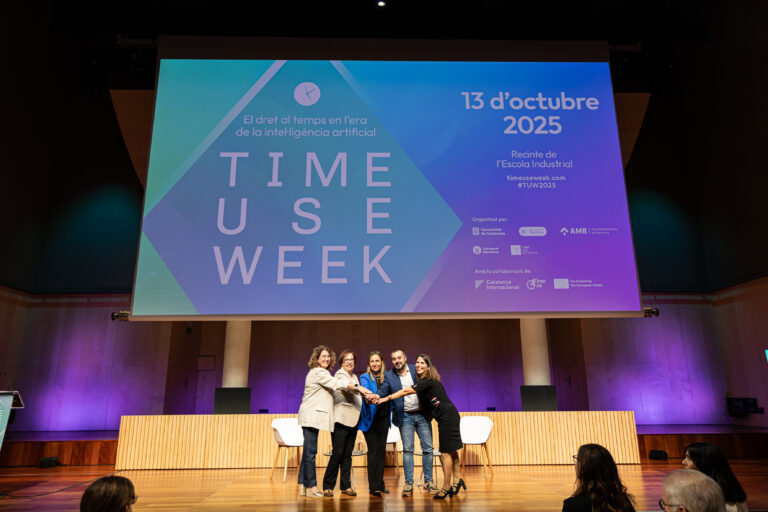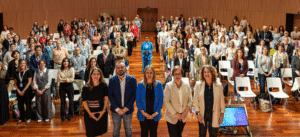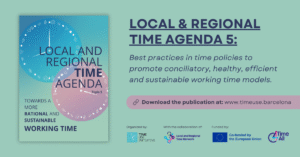- Time Use Week 2025 concludes its eleventh edition by reaffirming the role of time policies as a key tool to ensure well-being and equality in the digital age.
- More than 4,600 people from 46 countries have taken part in the main events and in over 85 decentralised activities across Catalonia.
- More than 40 international experts agreed on the need to rethink the use of technology and regulate it so that digital advances do not exacerbate time poverty and instead generate greater social well-being.
- The organizations promoting the TUW urge that the Right to Time becomes a right for everyone in the era of Artificial Intelligence and that the time factor be incorporated as a key indicator in public and business policies.
The eleventh edition of Time Use Week (TUW 2025, the International Week of Time and Schedules) concluded with a clear message: the technological revolution must be accompanied by a revolution in the organization of time.
Under the motto “The Right to Time in the Era of Artificial Intelligence”, the week opened the debate on how to ensure that digital advances generate more time available to people, rather than more haste and inequalities.
Over three days, more than 40 speakers from around the world and attendees reflected on the impacts of AI on the use of time in areas such as work, care, health and democracy, and agreed that technology can free up time, but only if it is applied with social and ethical criteria.
Time Use Week 2025 was organized by the Generalitat de Catalunya, the Barcelona City Council, the Barcelona Provincial Council, the Barcelona Metropolitan Area and the Time Use Initiative (TUI).
Top 10 takeaways from Time Use Week 2025
1. Reducing time discomfort and time poverty should be one of the priorities in the era of AI, but it is not yet.
The data presented show that hourly discomfort affects 80% of the population and that time poverty continues to affect 32% of women and 25% of men in Barcelona.
On a global scale, domestic and care work falls on women. The latest data show that women spend 4 hours and 28 minutes a day, while men spend 1 hour and 48 minutes on it. As Ana Maria Tribin Uribe, senior economist at the World Bank, states, “reducing this gap in the use of time is a condition for real equality and health”. Most experts conclude that, in order for technology to really help us live better, it is necessary to continue making cultural changes in the domestic environment, as well as regulatory changes”.
2. AI should not only pursue efficiency.
All experts agree that the pursuit of efficiency cannot be the main criterion for the use of AI. Giulio Quaggiotto, former director of Strategic Innovation at the United Nations Development Programme (UNDP), warns that “the search for efficiency tends to prevail in the use of AI in urban contexts, which tends to lead to unintended consequences.”
For years, there has been talk that technology, and now AI, will optimize time but, despite having more tools than ever before, time poverty continues to increase. Marta Galceran Vercher, senior researcher in Global Cities at CIDOB and head of the Global Observatory on Urban Artificial Intelligence, assures that “just from this observation – more technology, but less time – we should rethink the obsession with efficiency in the use of time. Perhaps it’s not so much about doing things faster, but about doing them better.”
On the other hand, Natalia Olson-Urtecho, former innovation advisor to Barack Obama (2010-2017) and member of the Technological Humanism Forum, insists that artificial intelligence can be a tool that helps simplify and reduce the time spent on the bureaucratic processes that accompany decision-making, with the aim of driving progress and innovation.
One area in which AI is already transforming the uses of time in the city is mobility, as demonstrated by the experience presented by the city of Istanbul. During TUW, it was also stressed that tools such as digital twins must include the uses of time to be able to test time policies.
3. AI should perform those tasks that humans don't want to spend time on.
One of the most discussed topics has been how AI should focus on repetitive tasks so that humans can spend more time on creative tasks. Giulio Quaggiotto insisted on the need to give intentionality to AI, recalling Joanna Maciejewska’s phrase, “I want AI to do my laundry and wash the dishes so that I can dedicate myself to art and writing”. ChatGPT data supports this change: in 2023, 80% of users were men, but in 2025 women already represent 52.4%. More than 70% of the questions in this AI tool are related to domestic, educational or personal organization uses.
A good example of this use is that the city of Istanbul and its metropolitan area have managed to reduce commute time by using AI.
4. AI does not exponentially increase business productivity.
Daron Acemoglu, Nobel Prize in Economics 2024, argues that the macroeconomic benefits of AI in global productivity are much more modest than what big tech companies claim, and calculates that the cumulative impact over ten years could be only between 0.7% and 0.8%. This is because, according to Ramon López de Mántaras Badia, a pioneer of artificial intelligence in Europe, and Olivia Blanchard, a consultant specialising in the impact of technology on society, “AI does simple tasks such as systematizing data well, but in complex situations much more time is lost detecting and correcting errors than if you had done it yourself”.
Many experts agree that generative artificial intelligence does not completely replace human work, but it does transform it: people are now hired to correct mistakes or provide a human touch to what machines generate.
5. In the digital era, regulation and collective bargaining are key to the organisation of working time.
In the future, according to Anna Ginès i Fabrellas, professor at ESADE, the time spent on paid work will decrease if society decides to do so: “We must not fall into technological determinism. We will be able to work as much as society wants; the regulation of working time is our responsibility.
In this regard, at the BizBarcelona Exhibition, on October 15, positive experiences of companies such as the Surt Foundation and El Risell were shown, which have implemented reduced working hours and digital disconnection measures. As the Labour Relations Council of the Government of Catalonia recalled, digital disconnection is a fundamental right of workers, an obligation on the part of employers and an essential tool for the prevention of occupational risks.
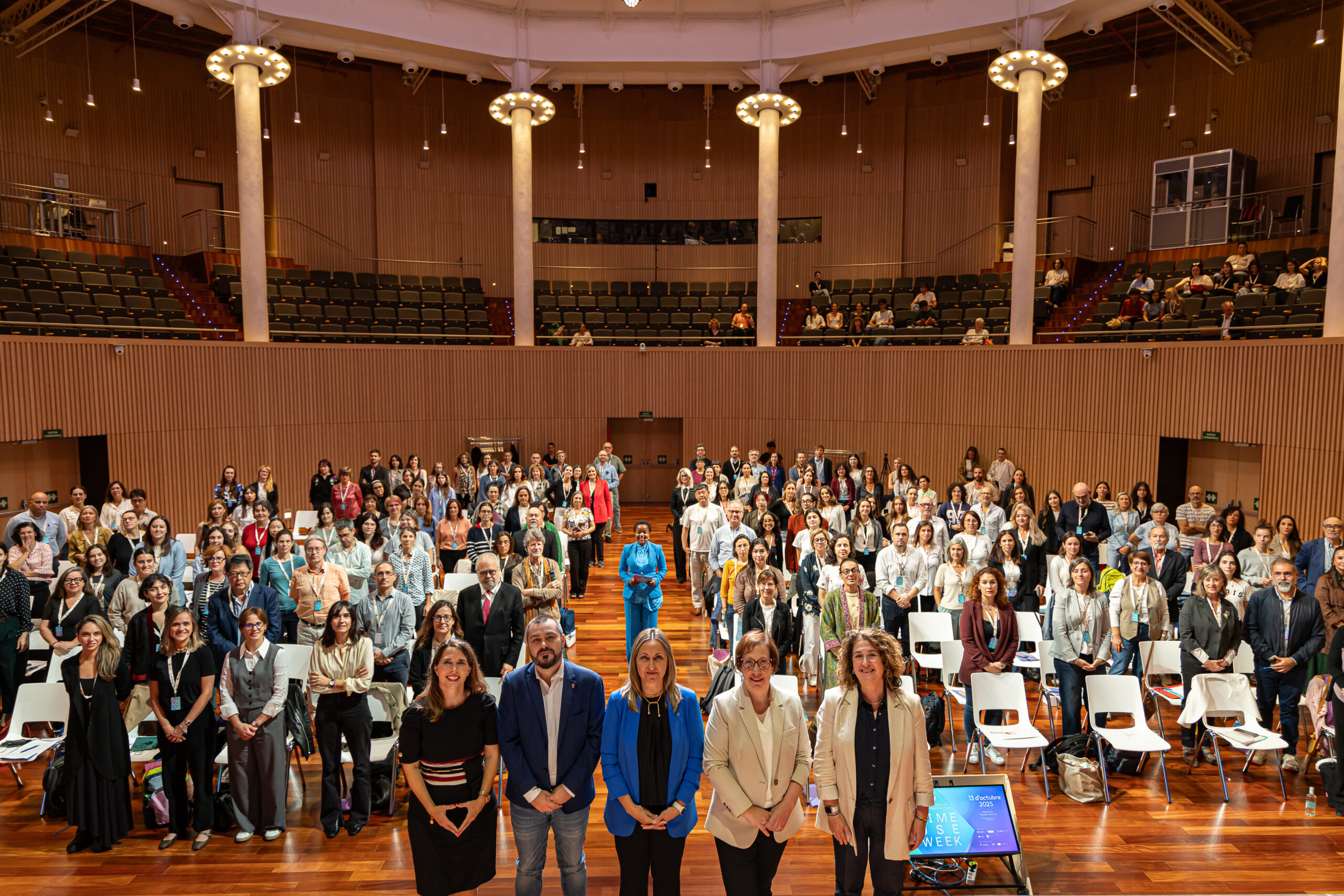
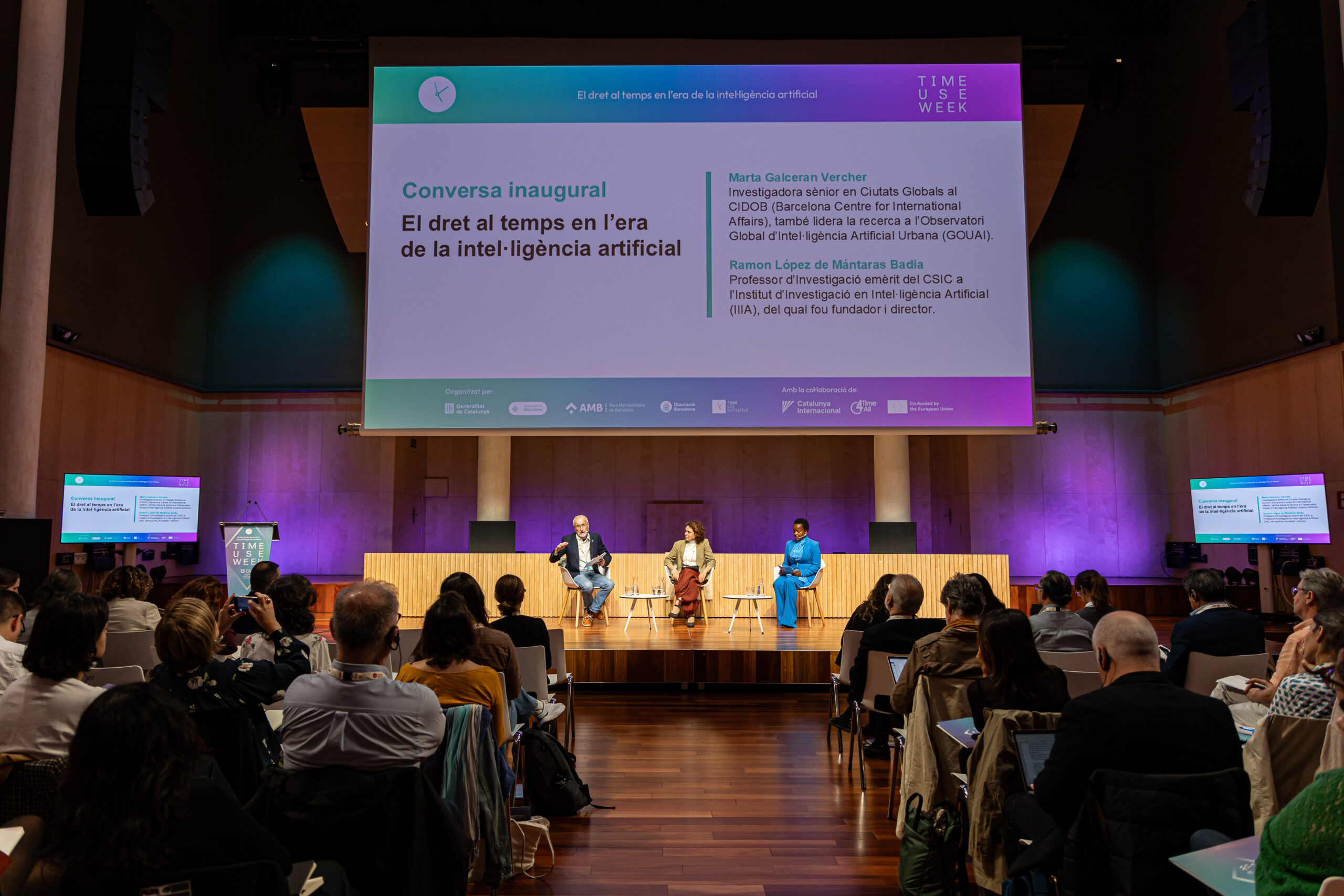
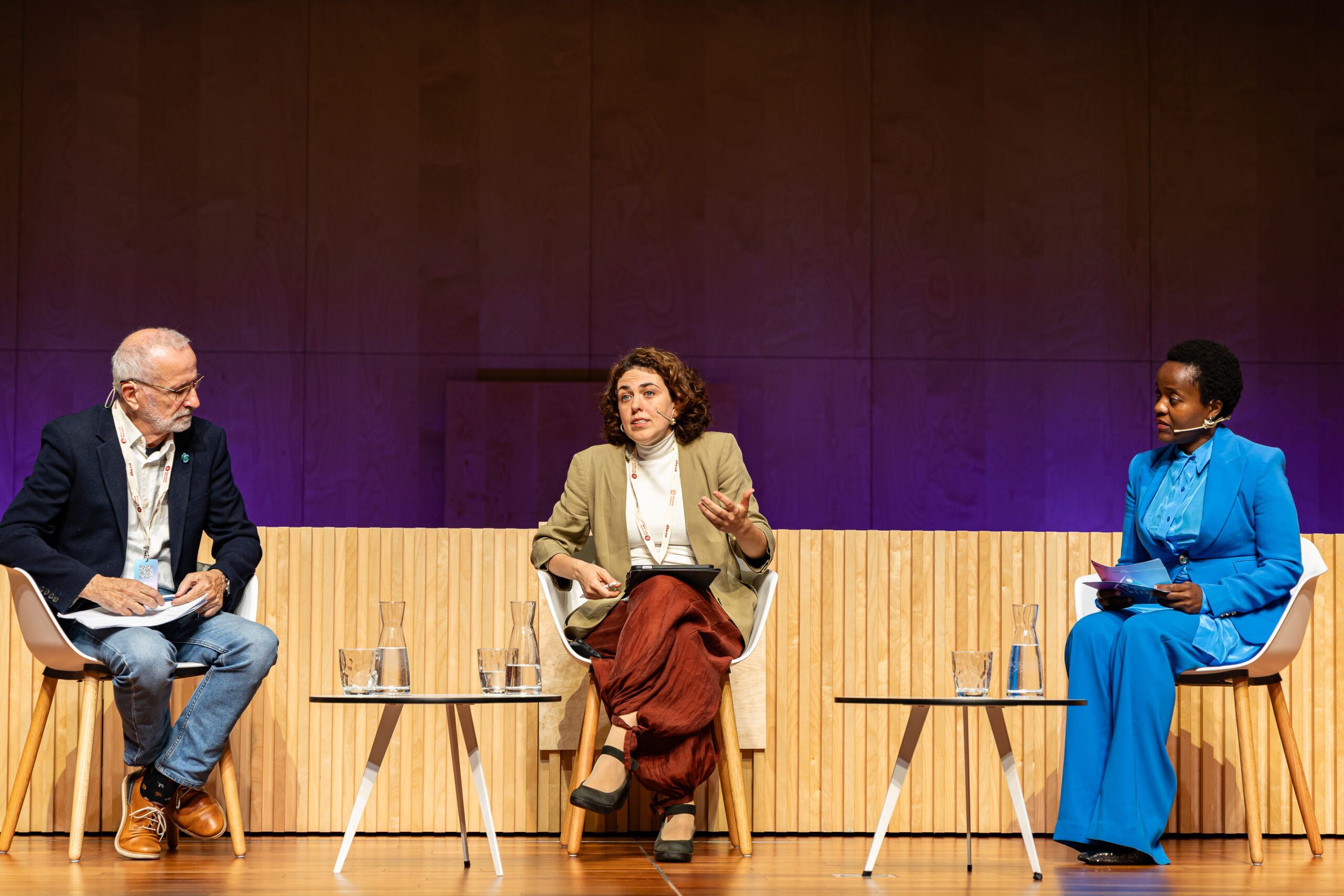
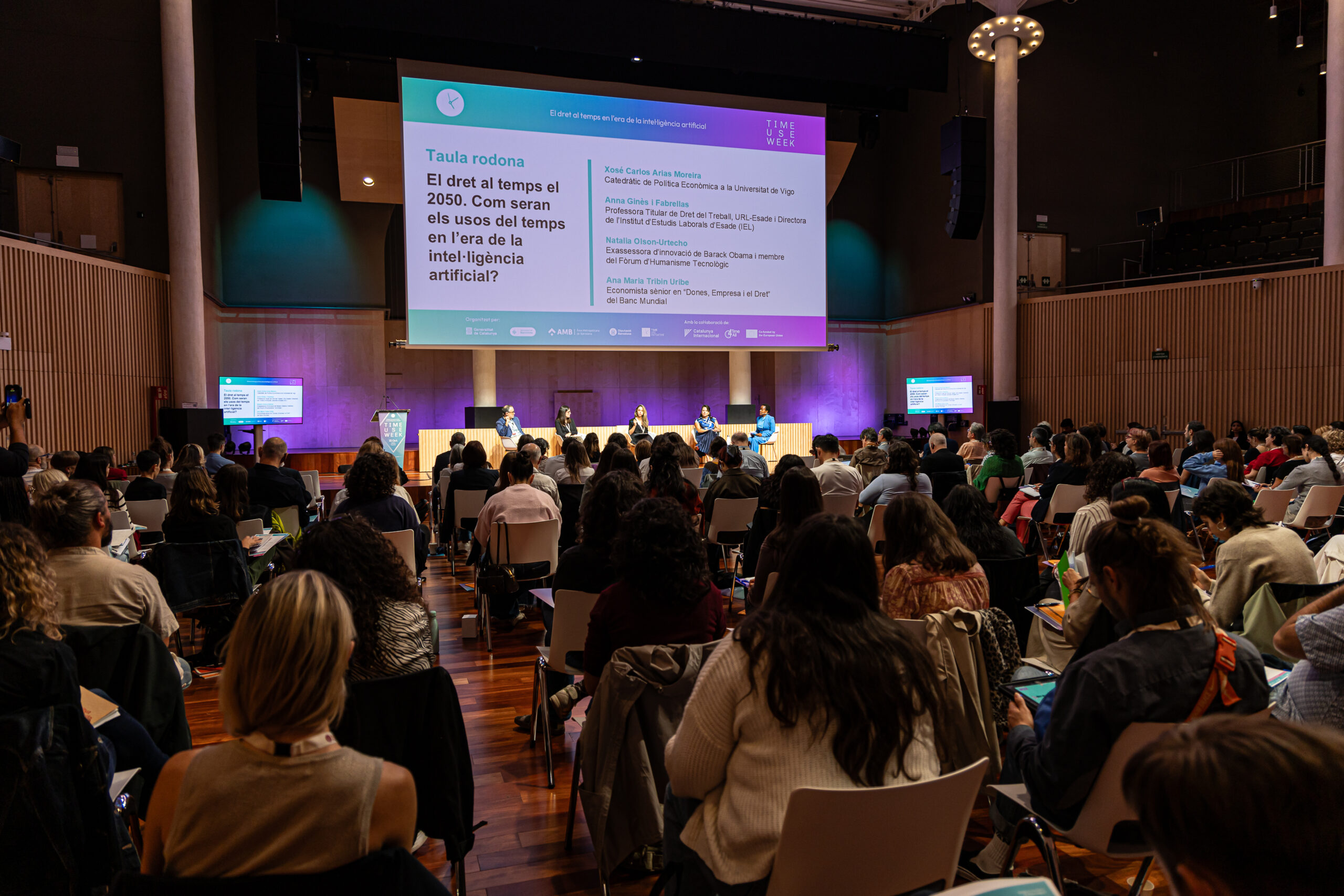
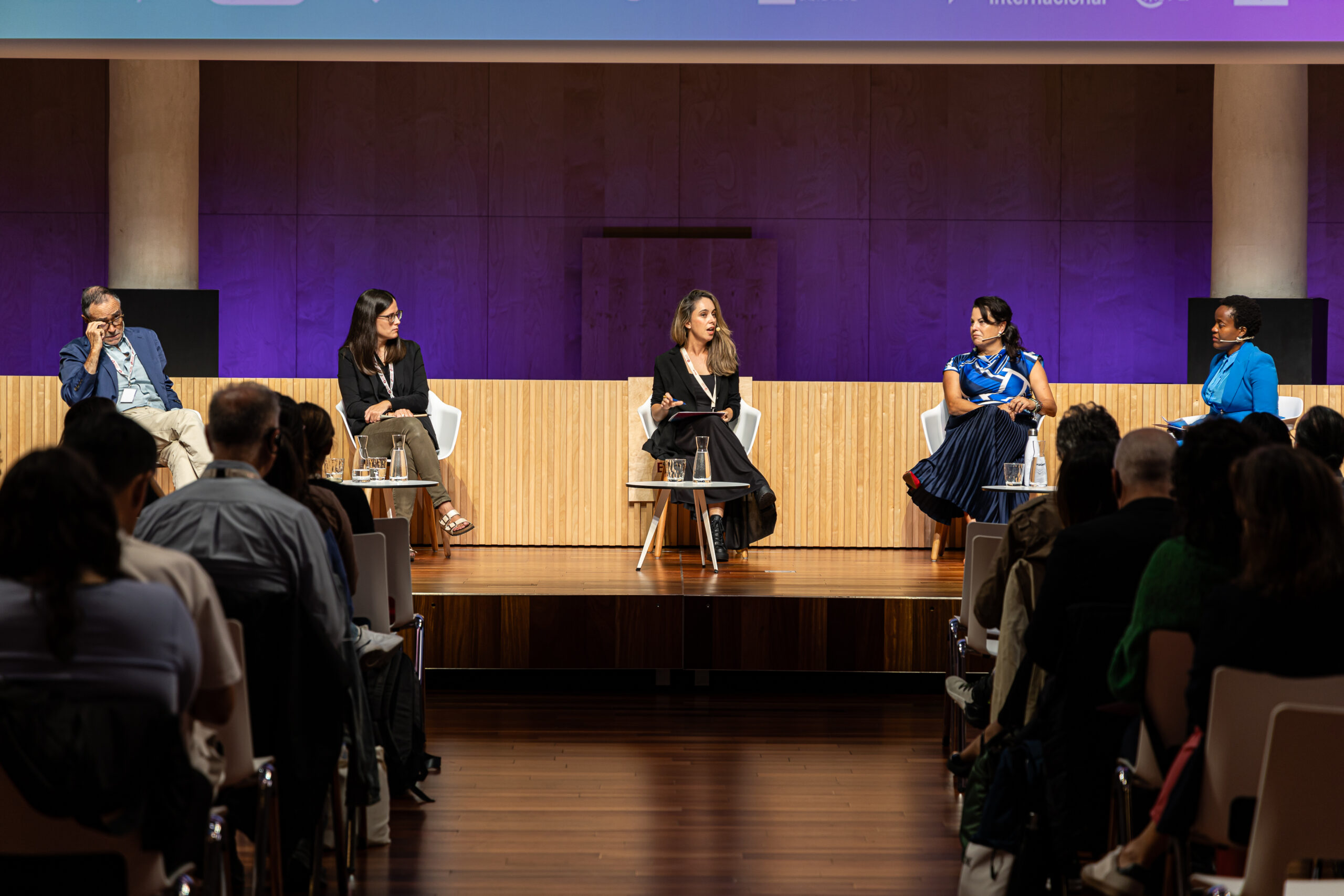
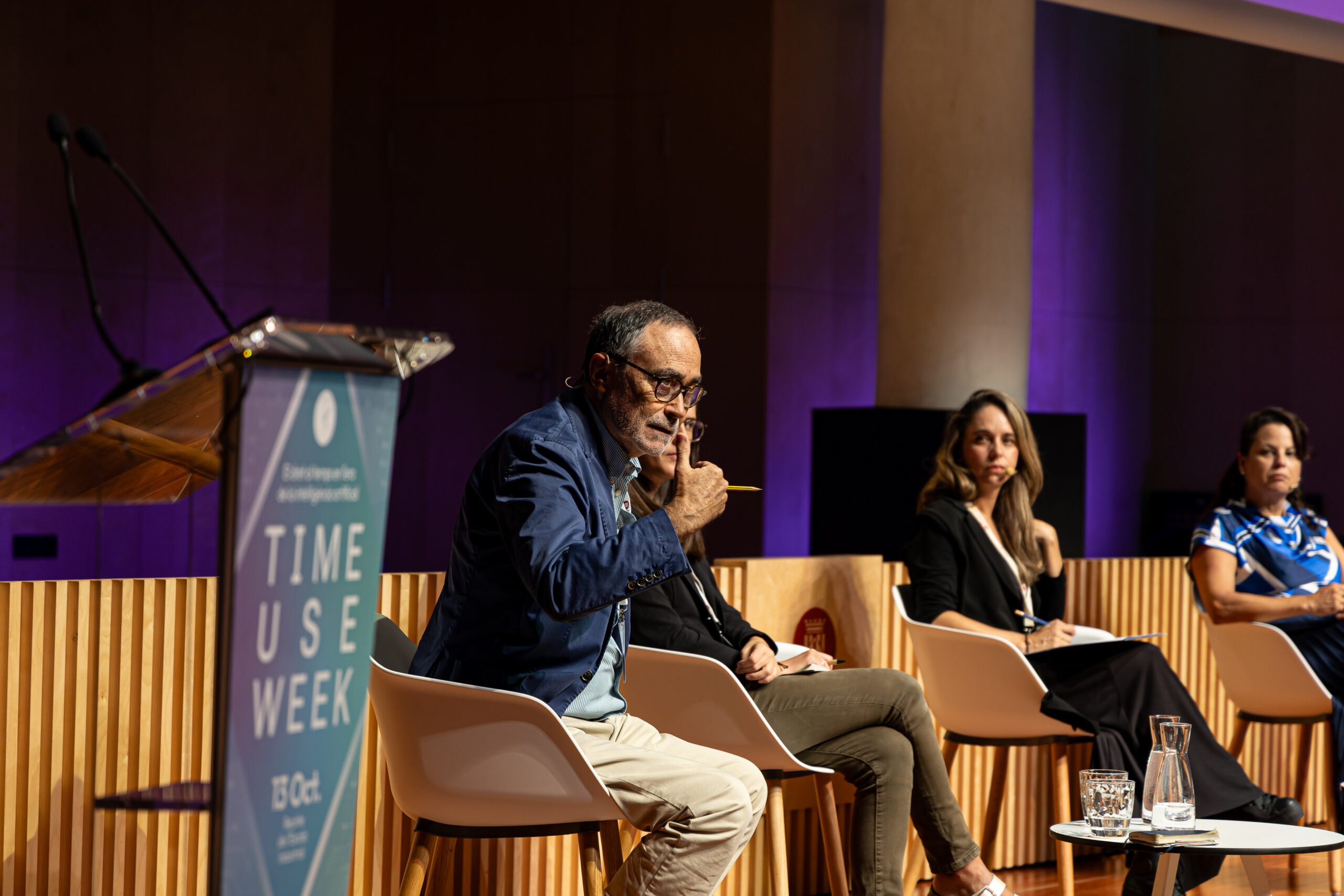
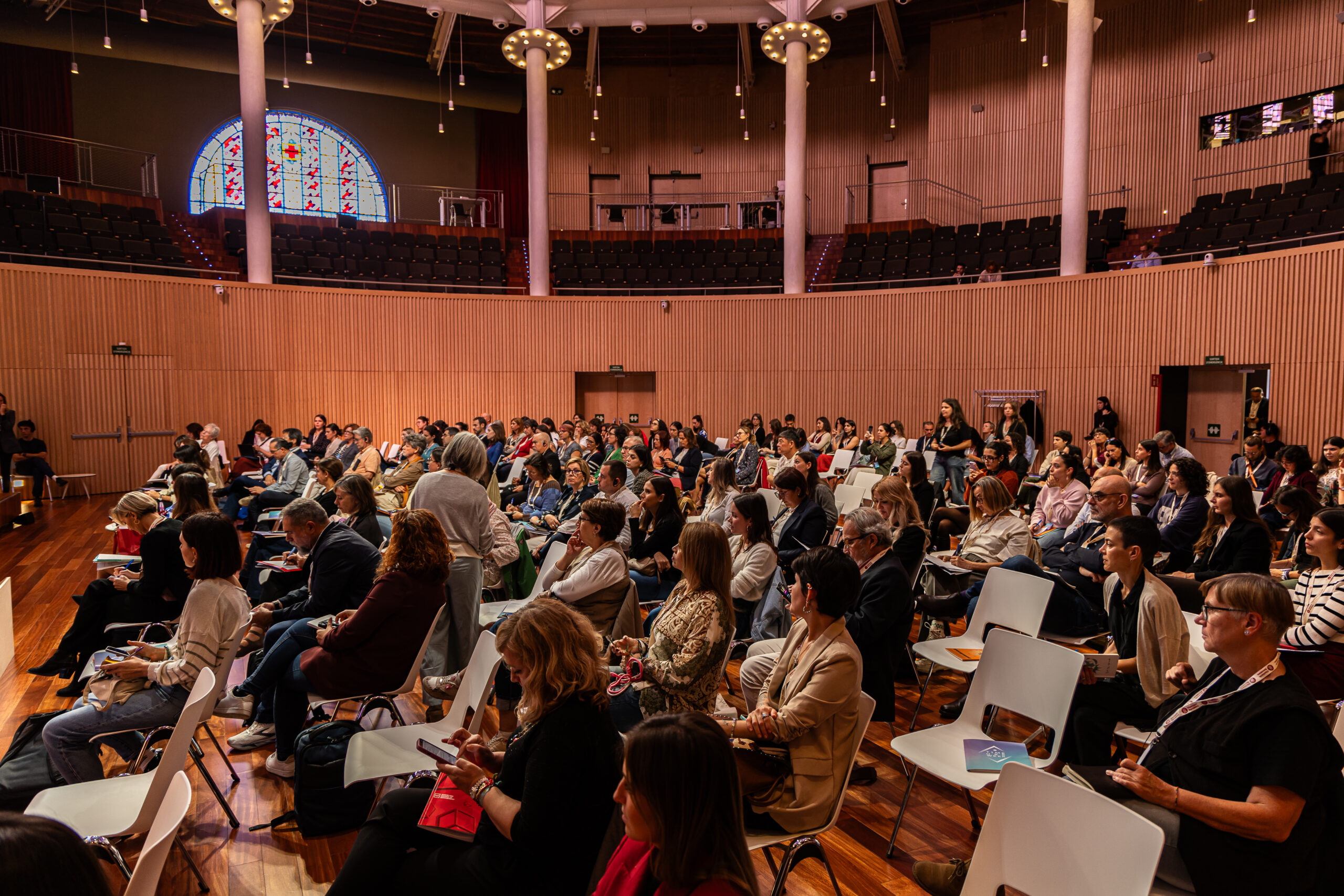
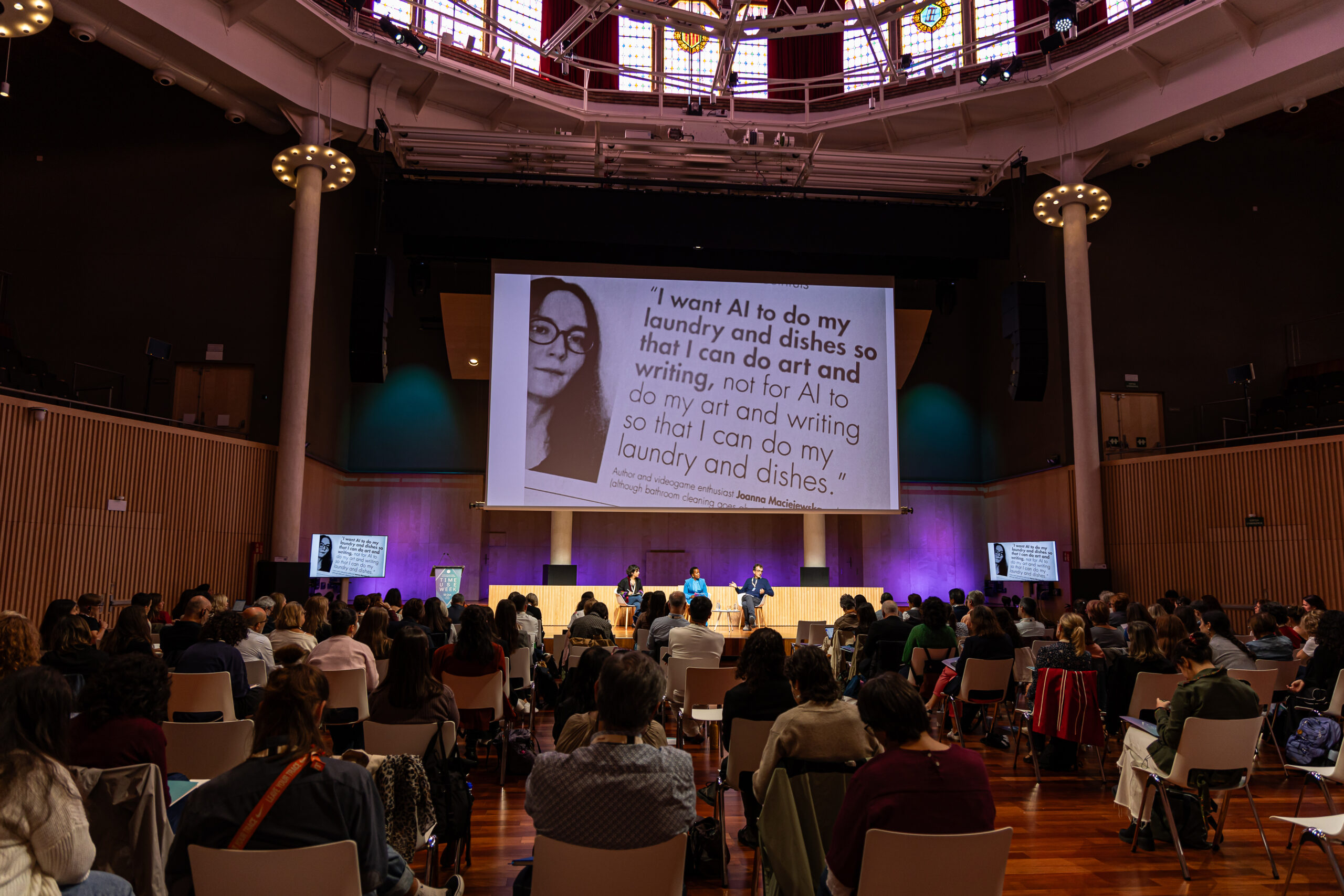
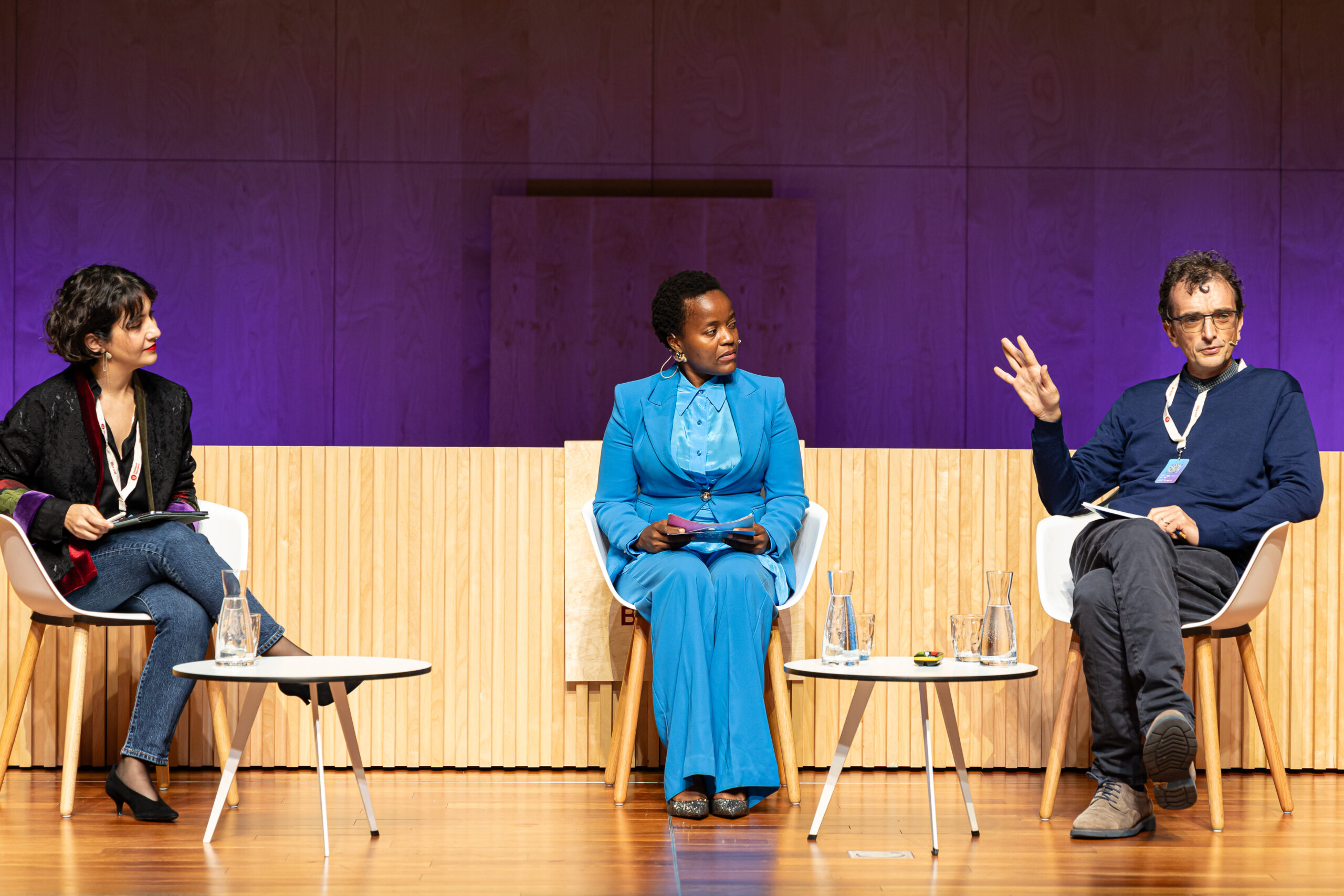
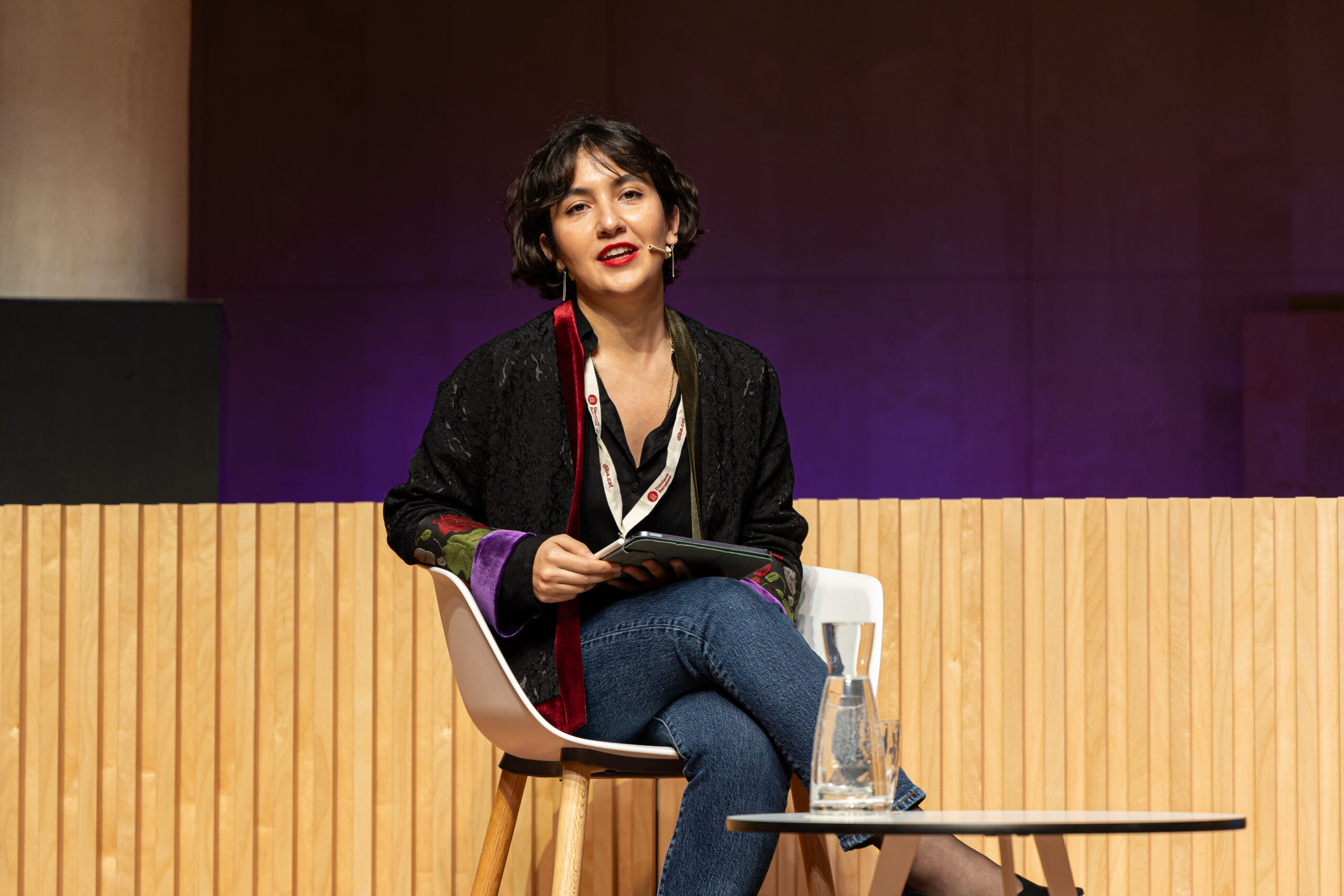
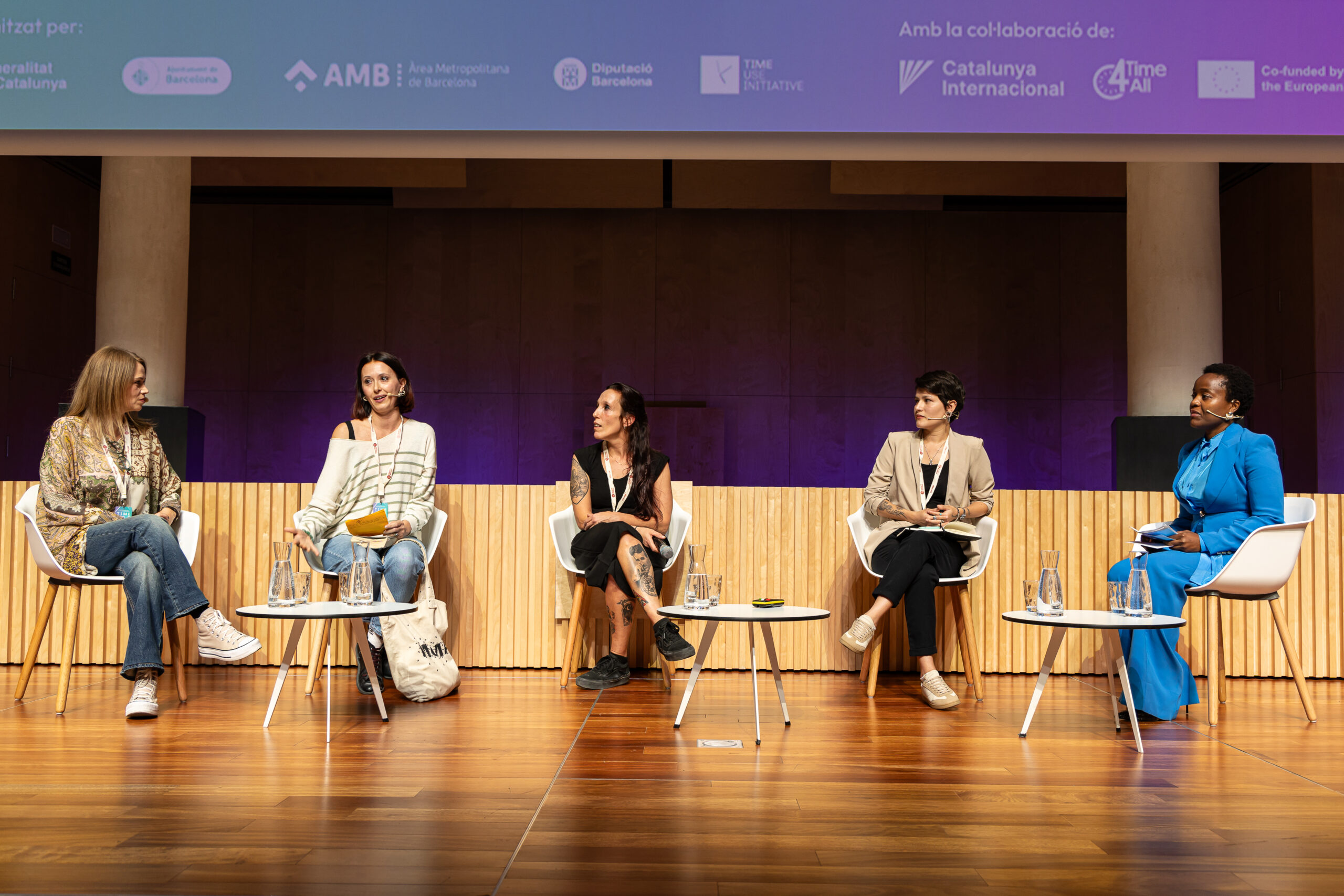
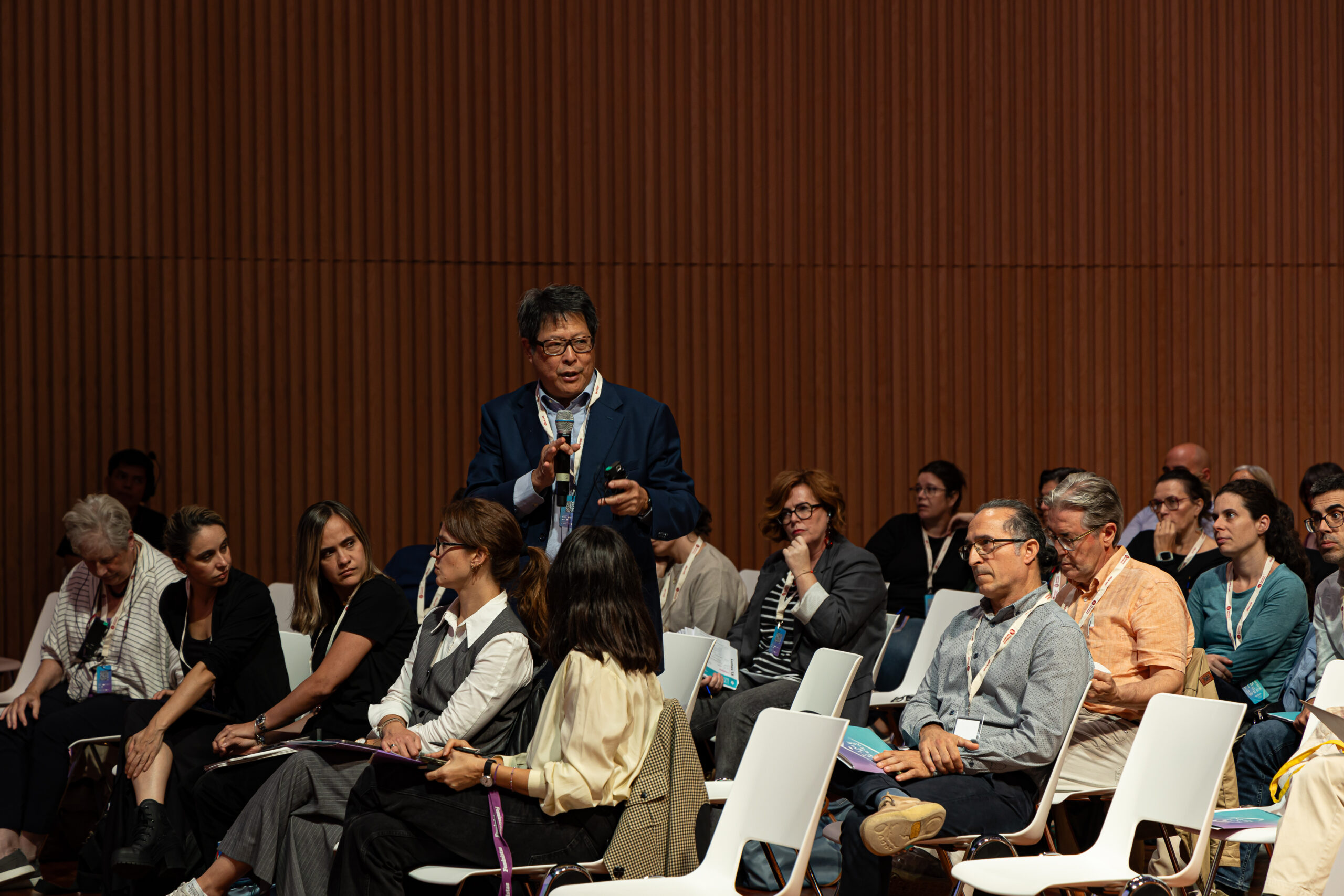

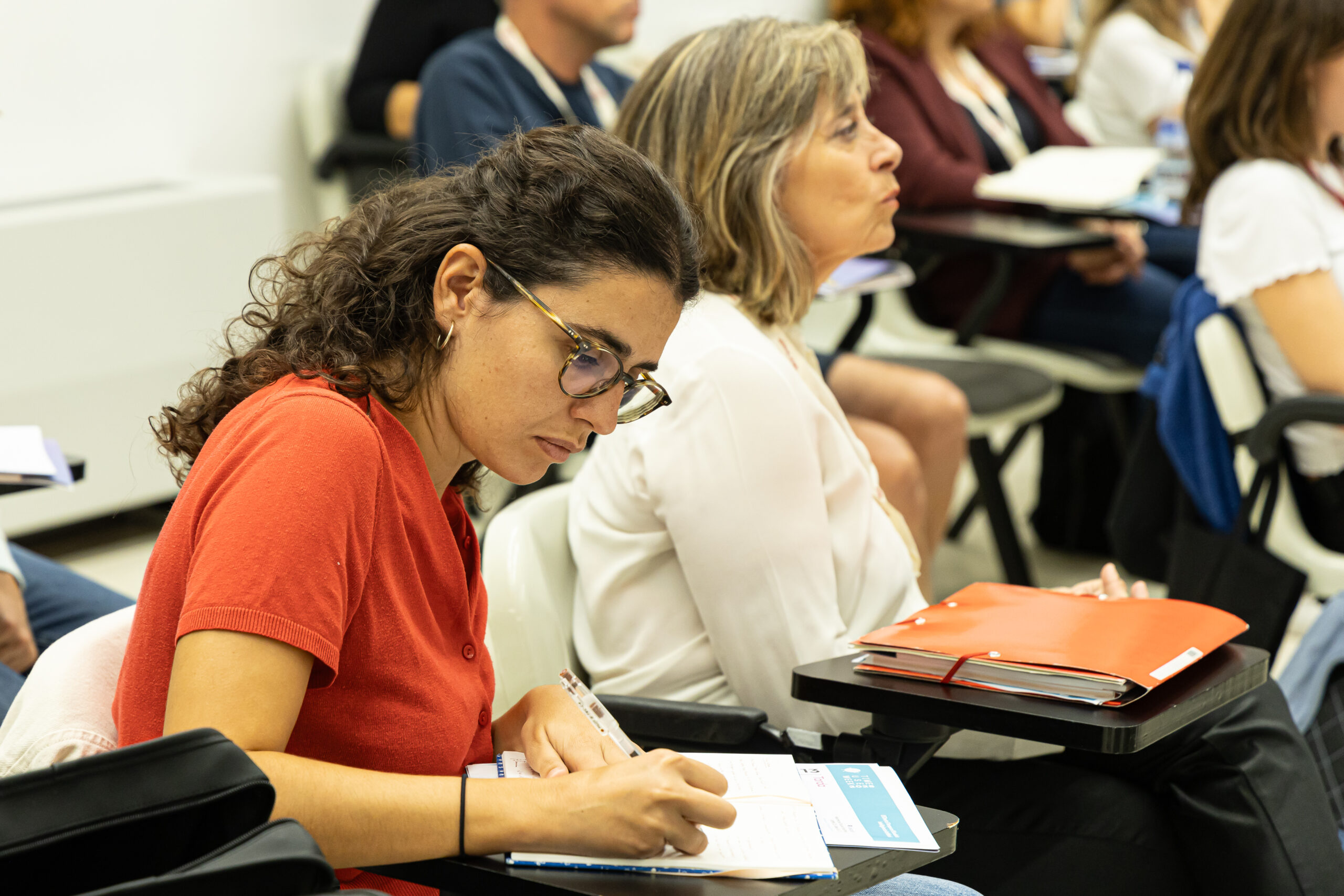
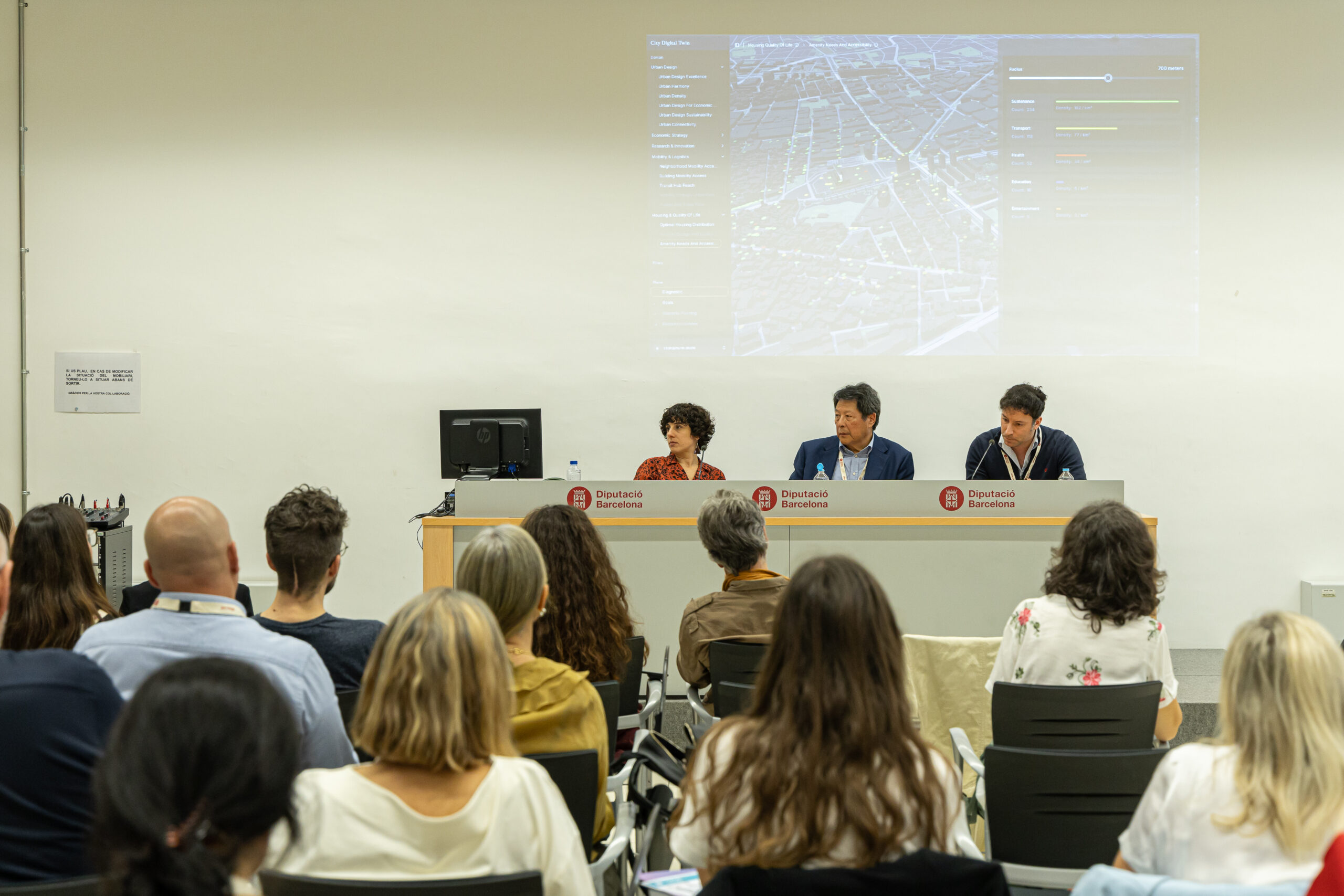
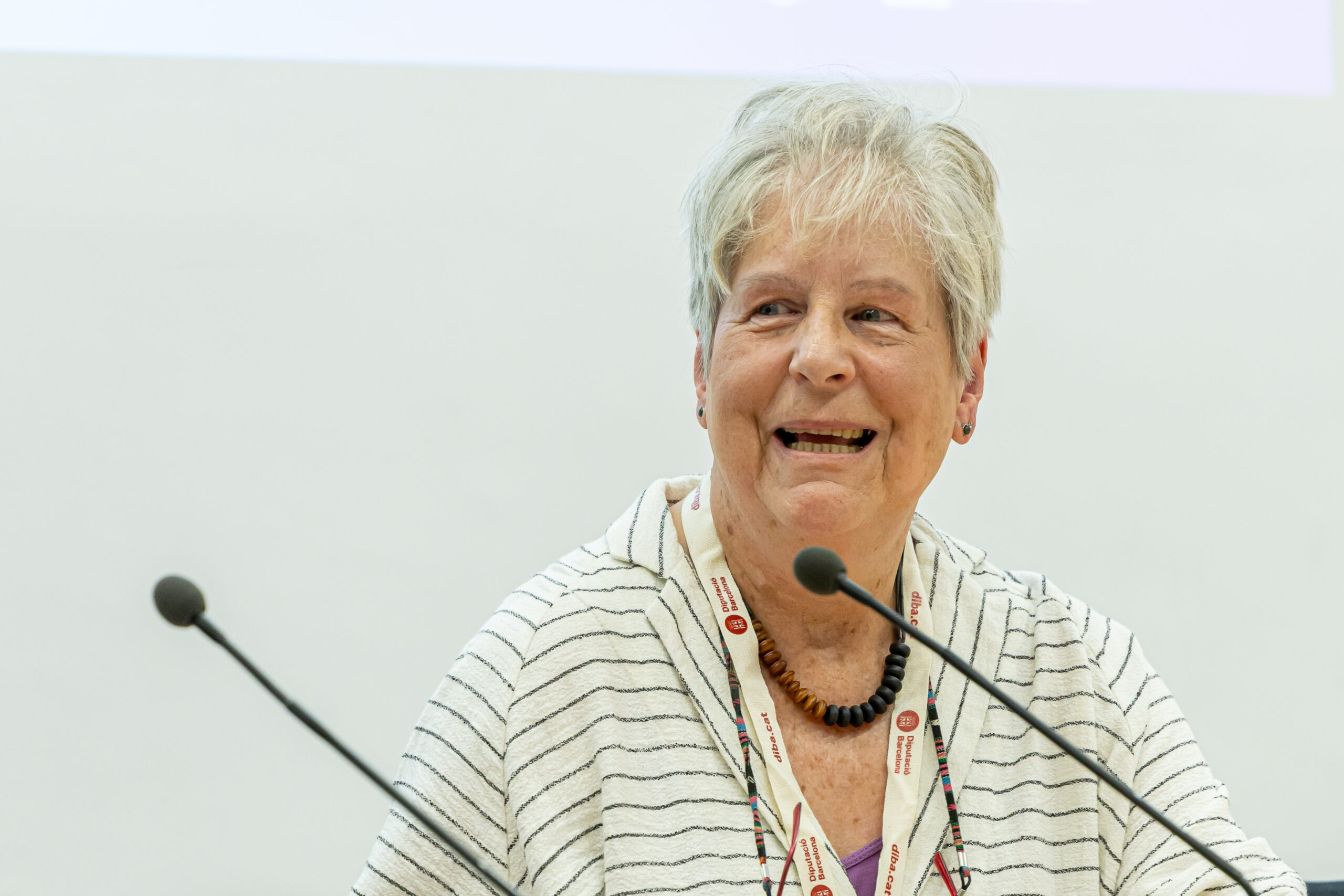
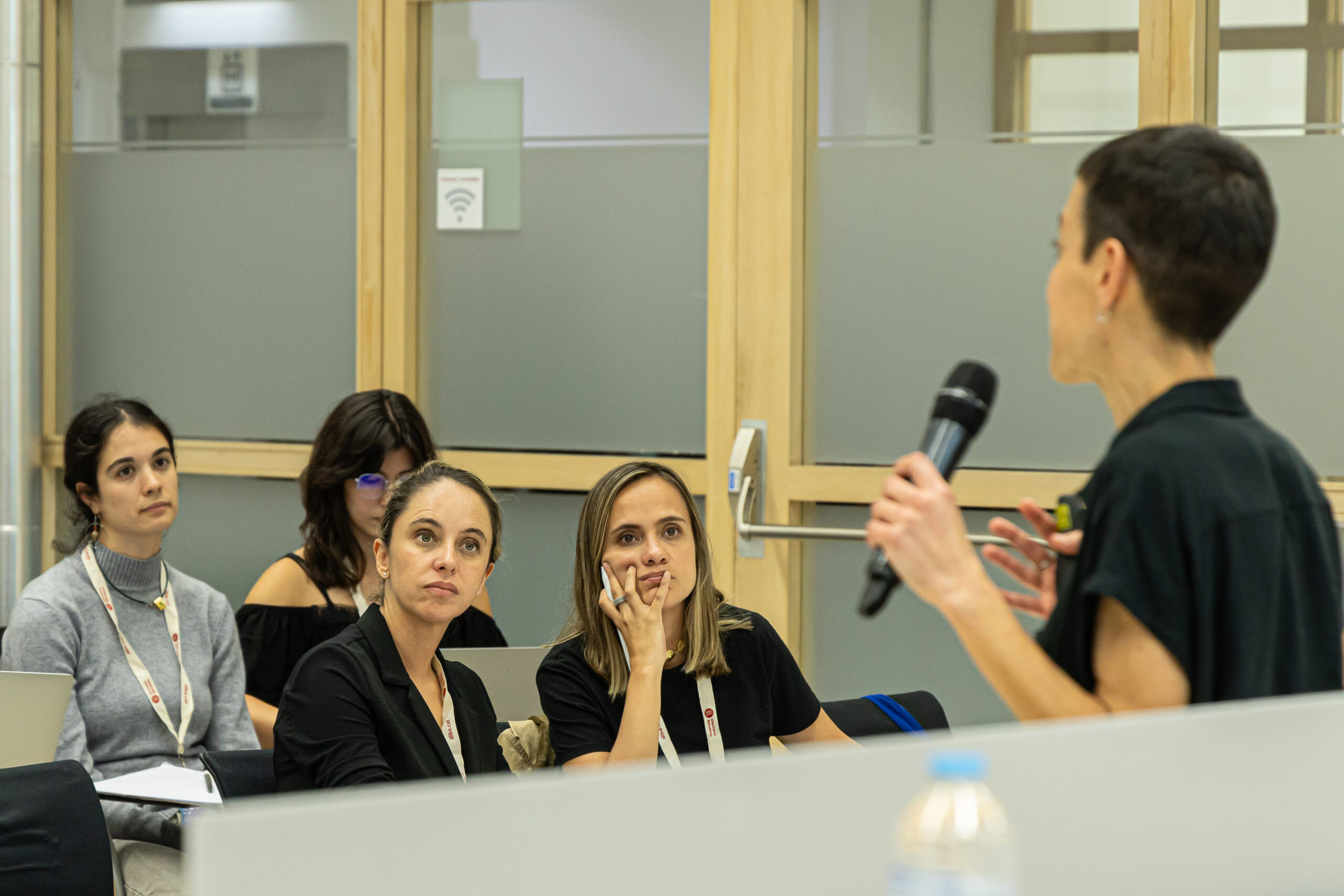
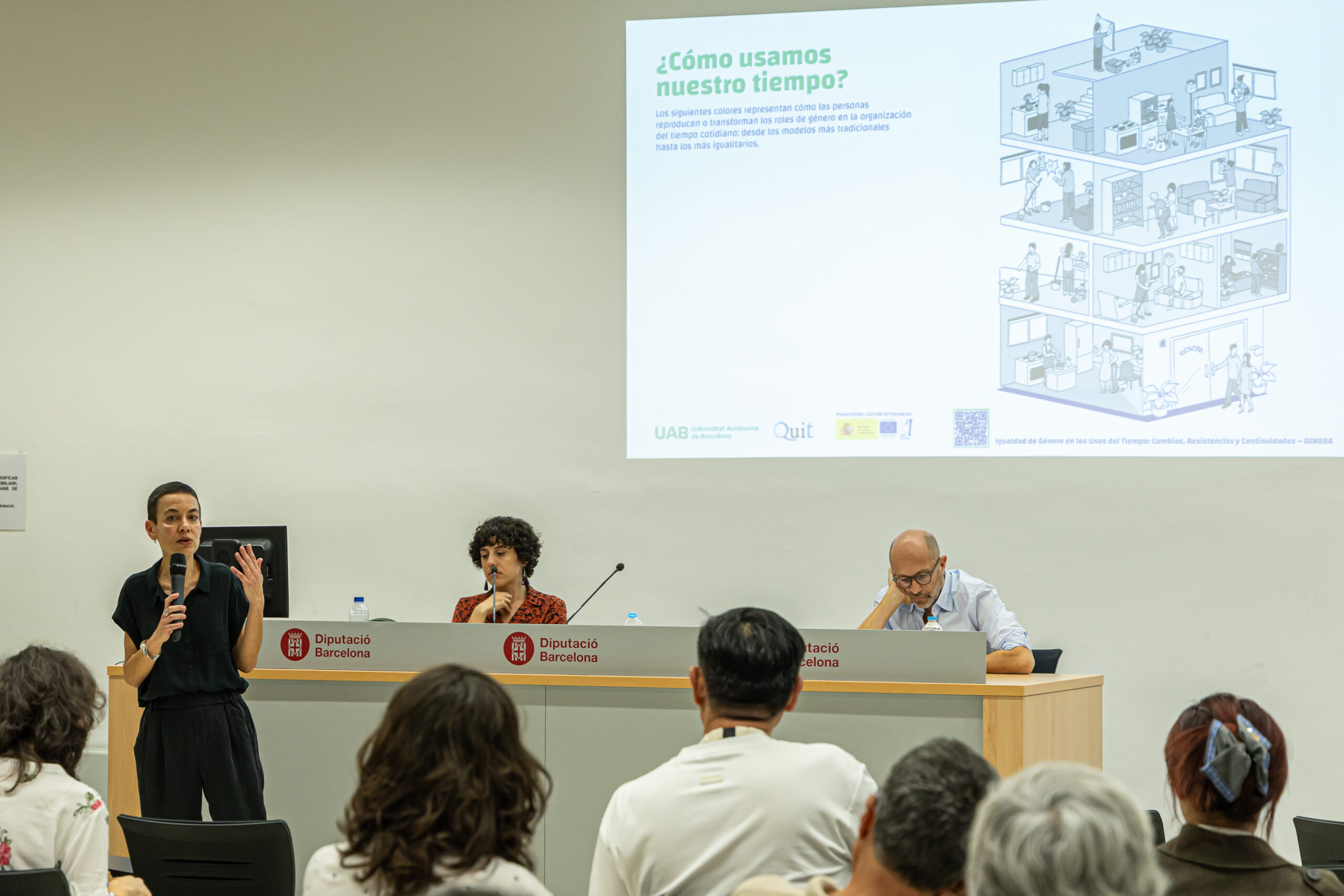
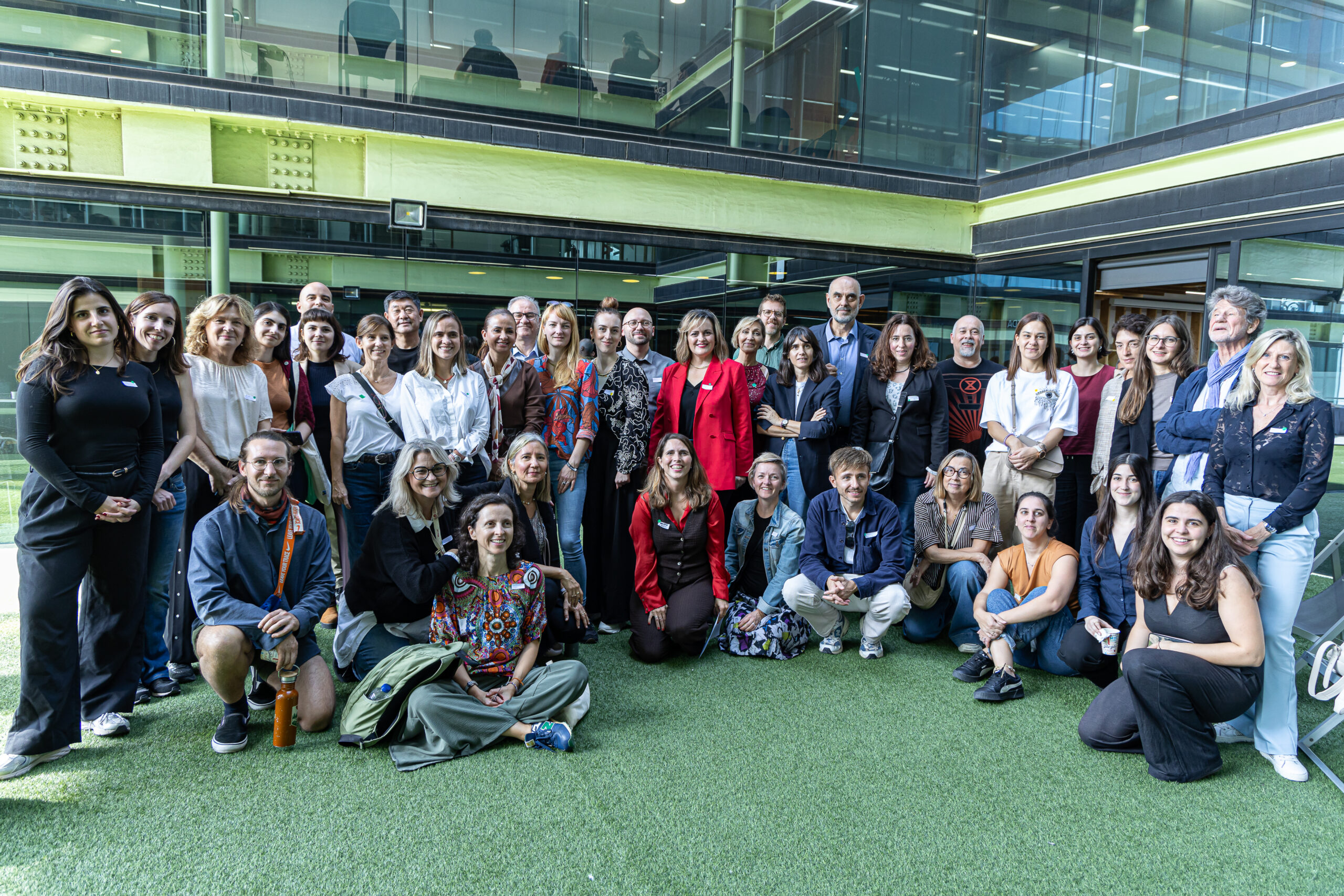
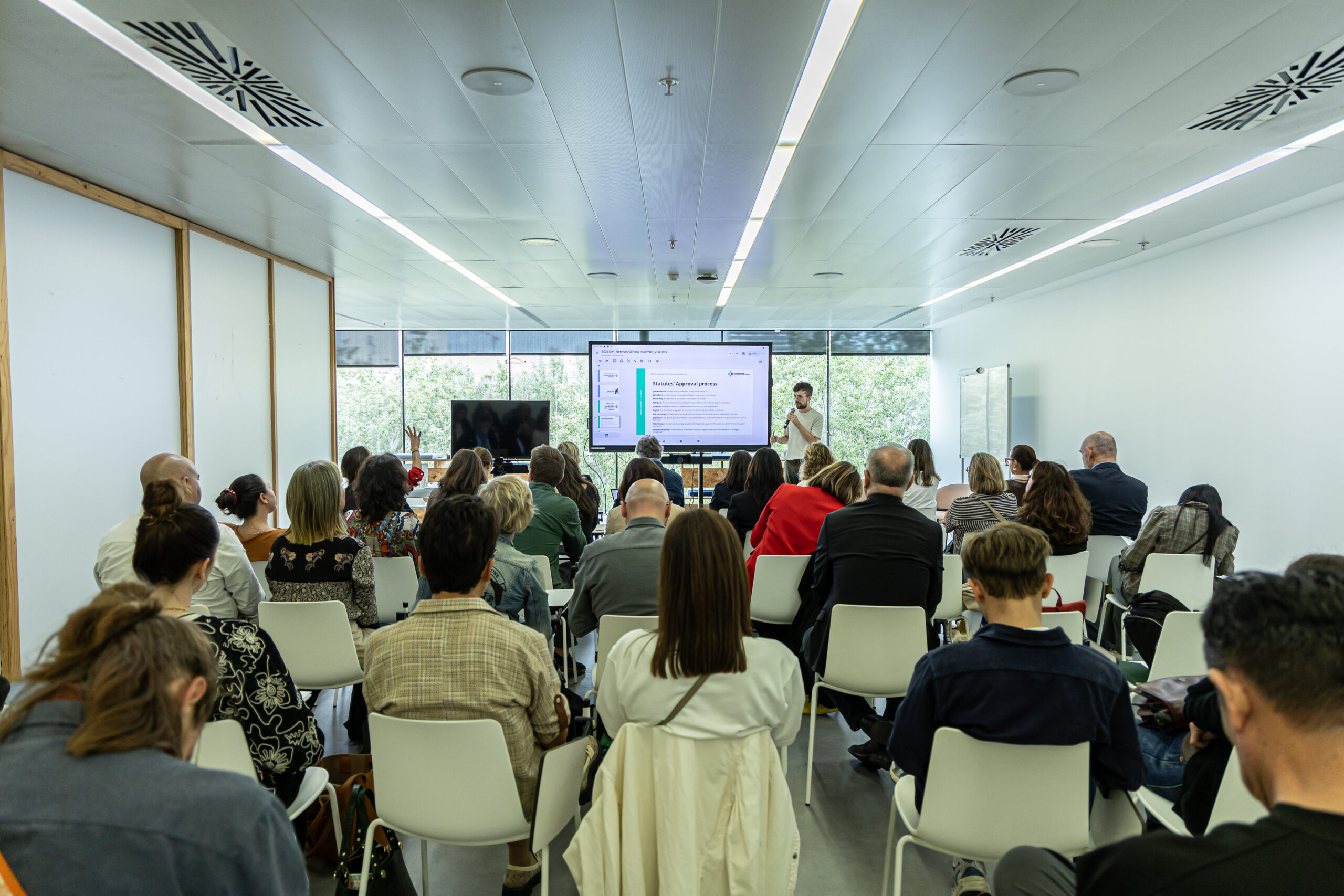
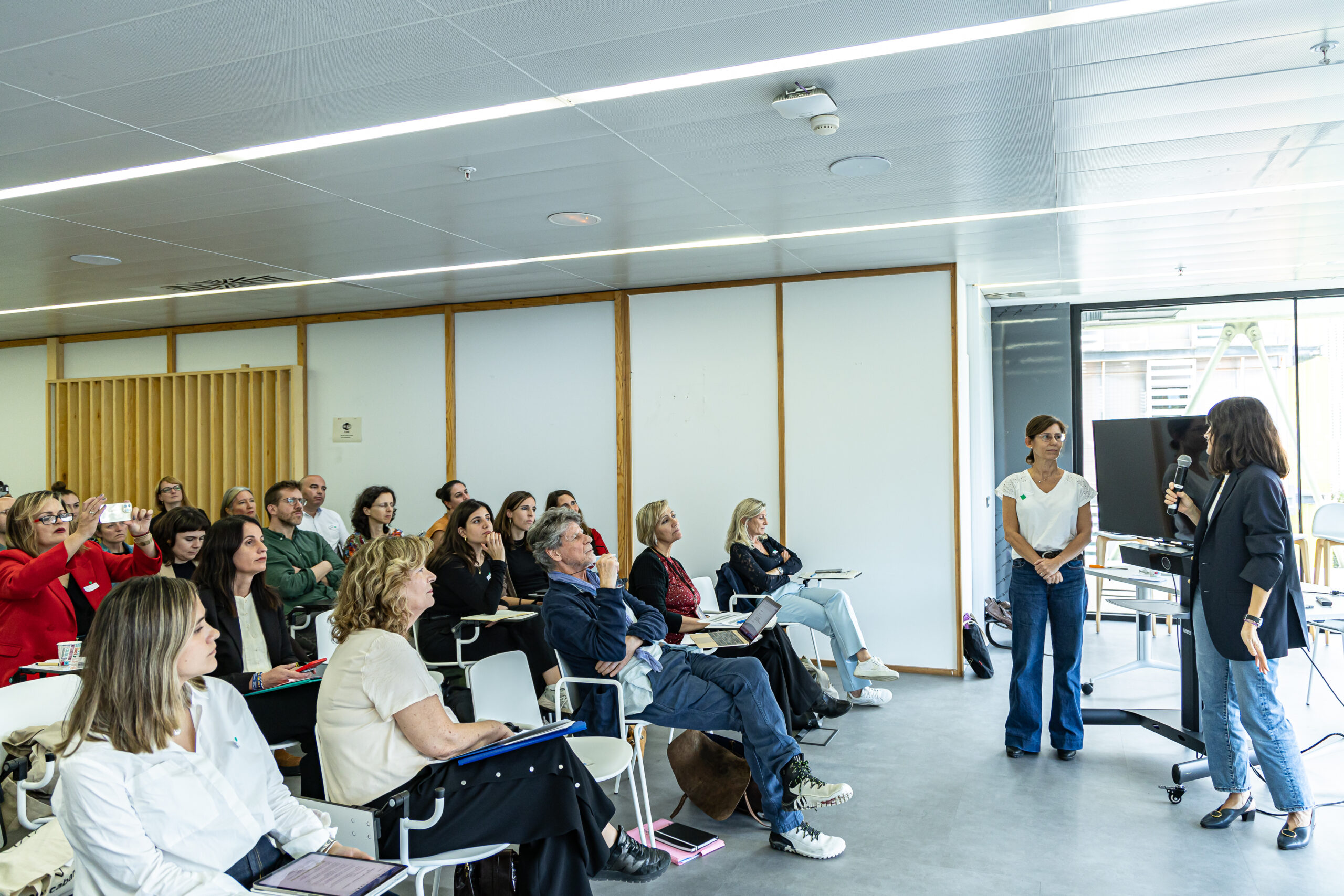
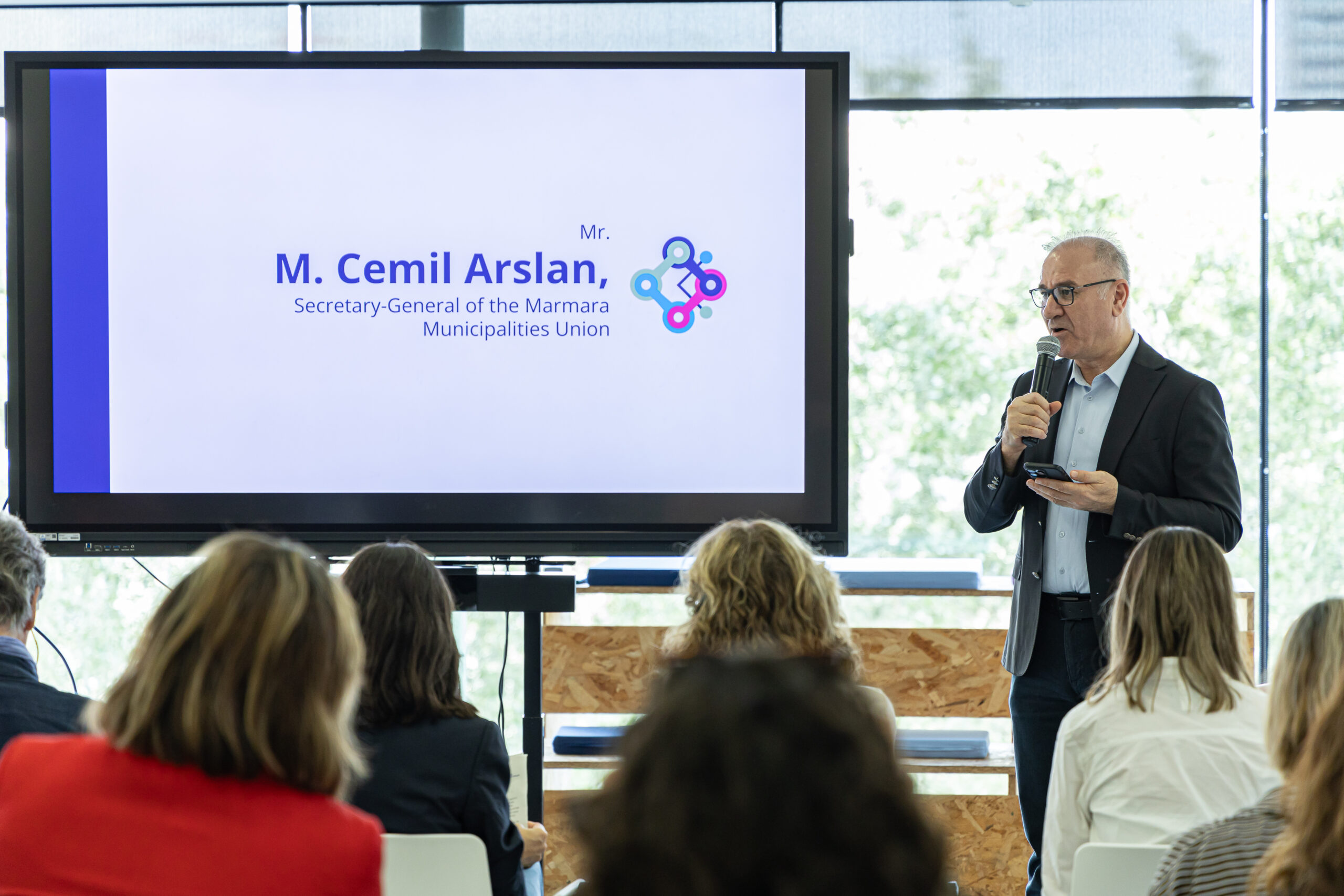
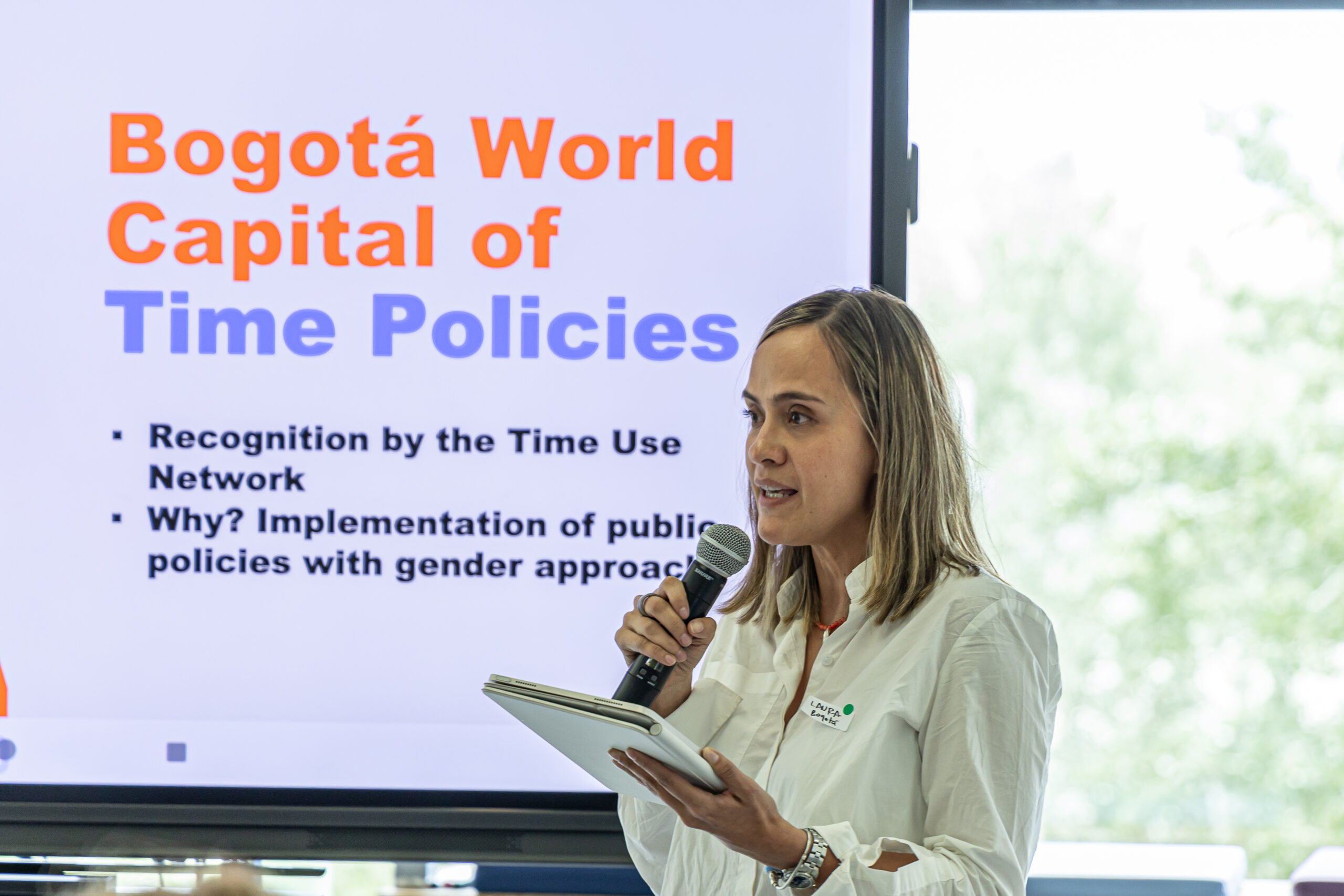
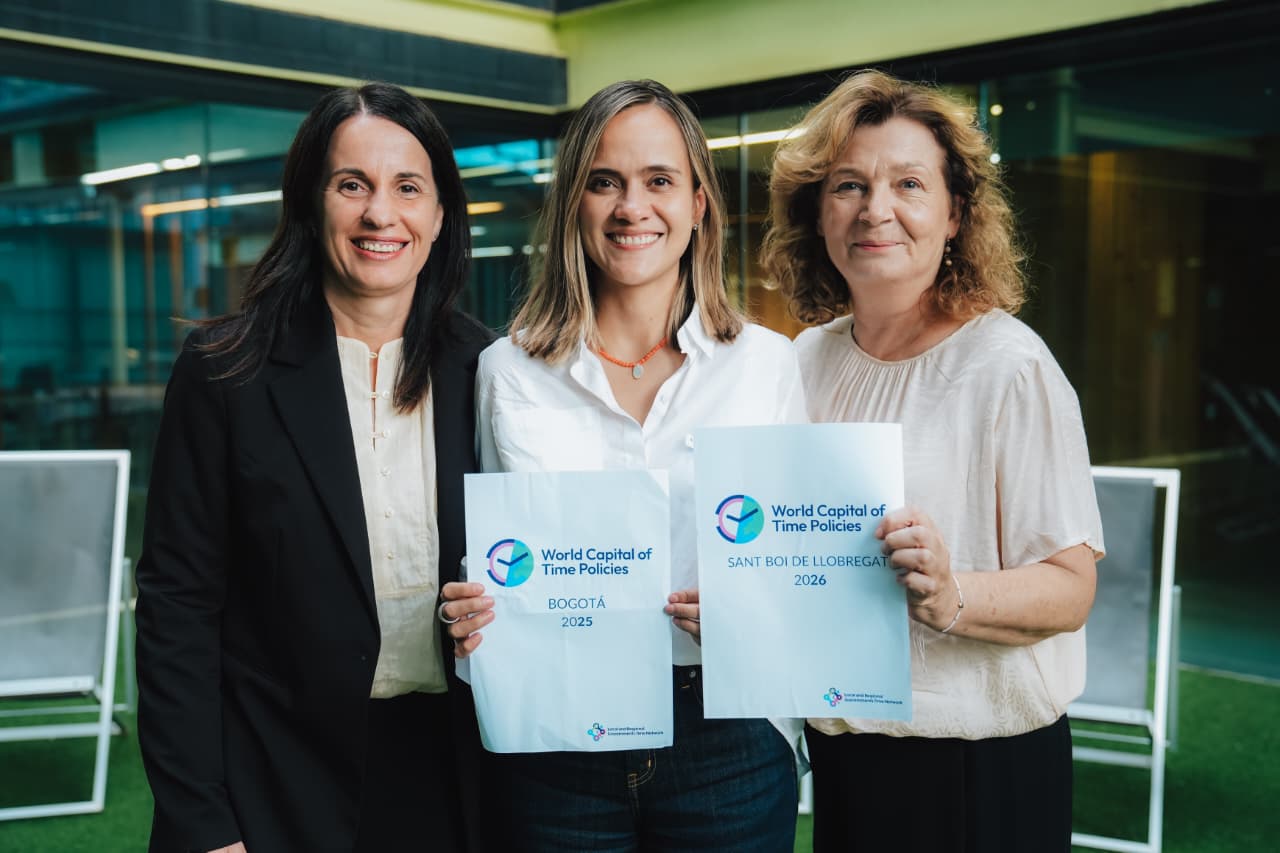
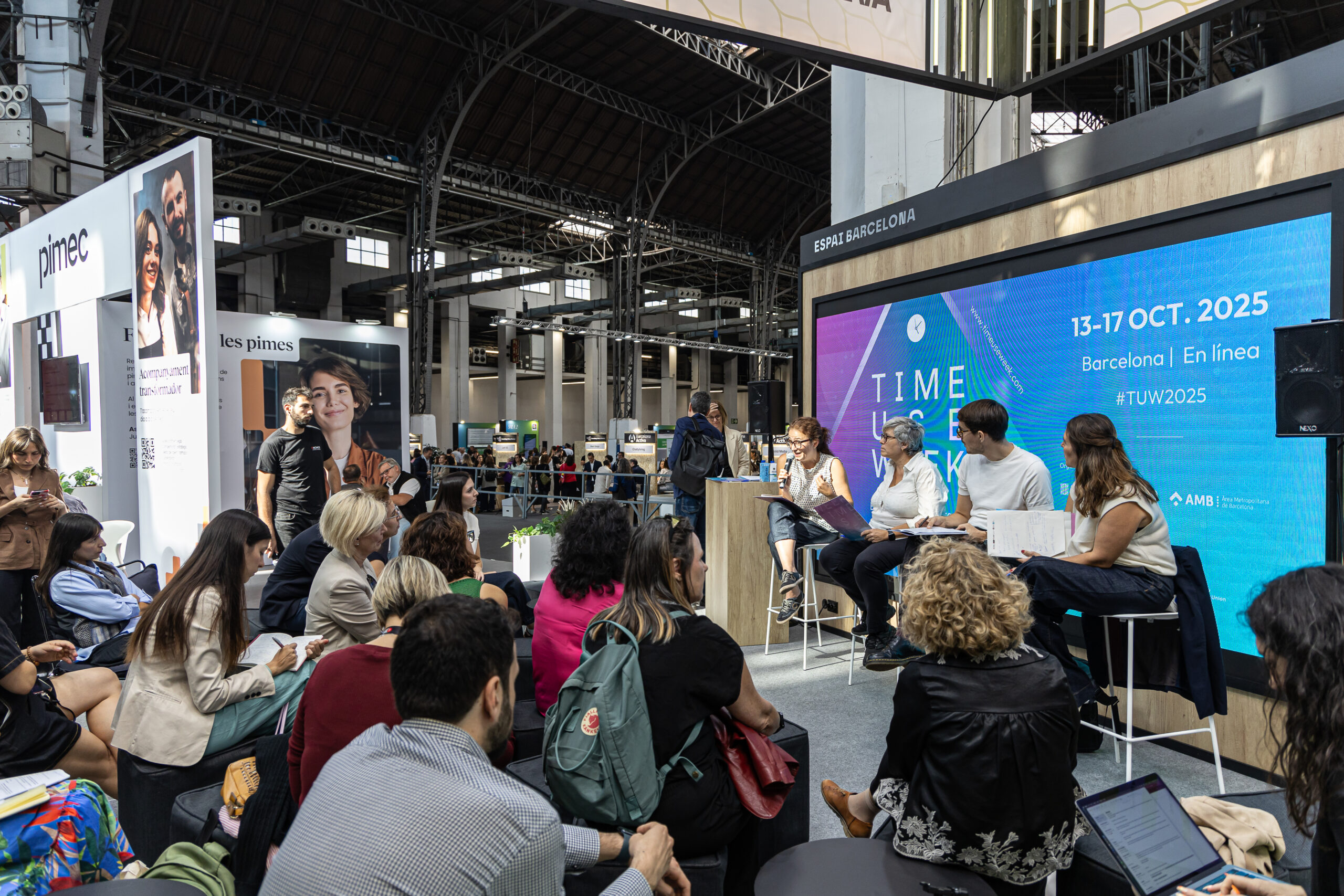
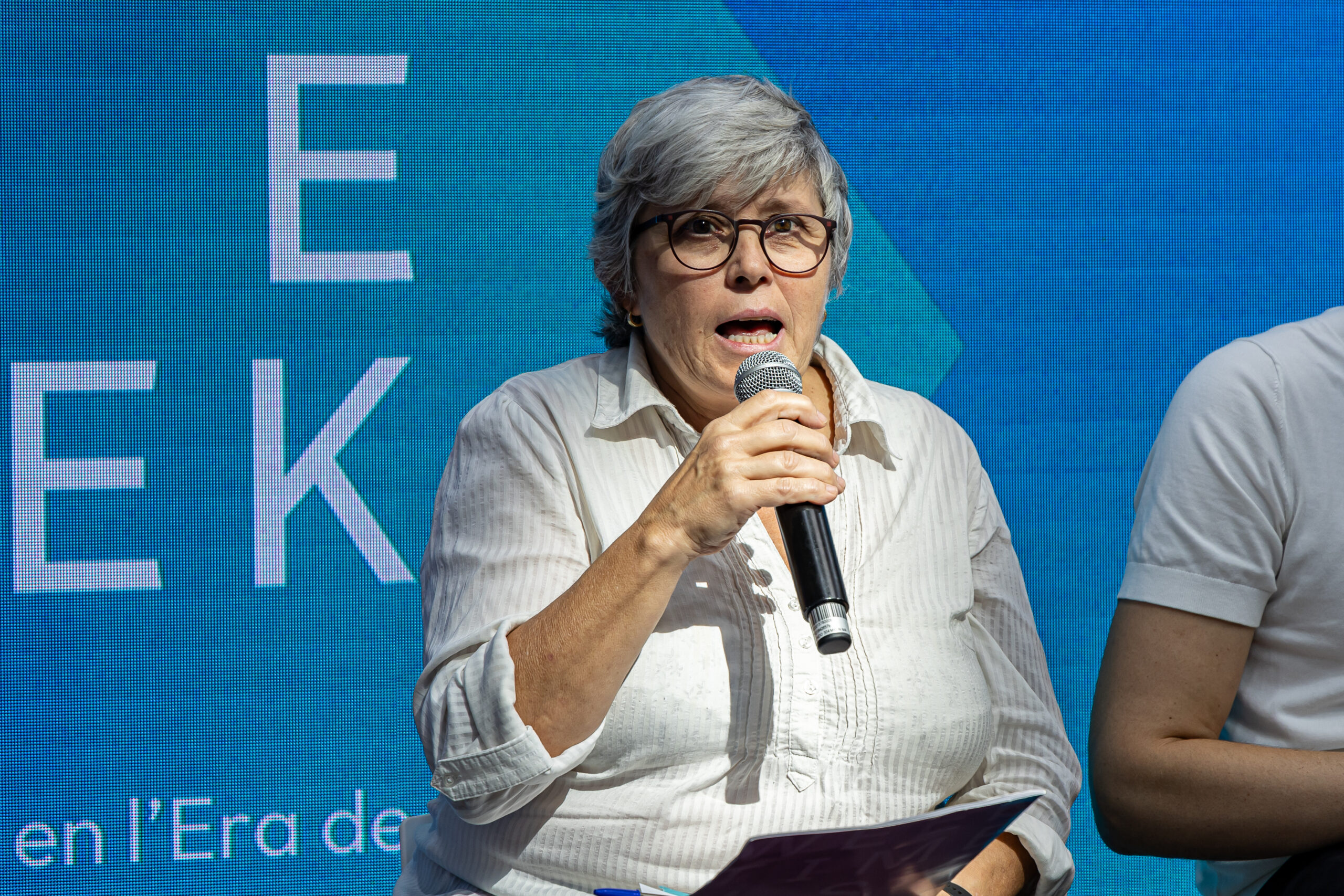

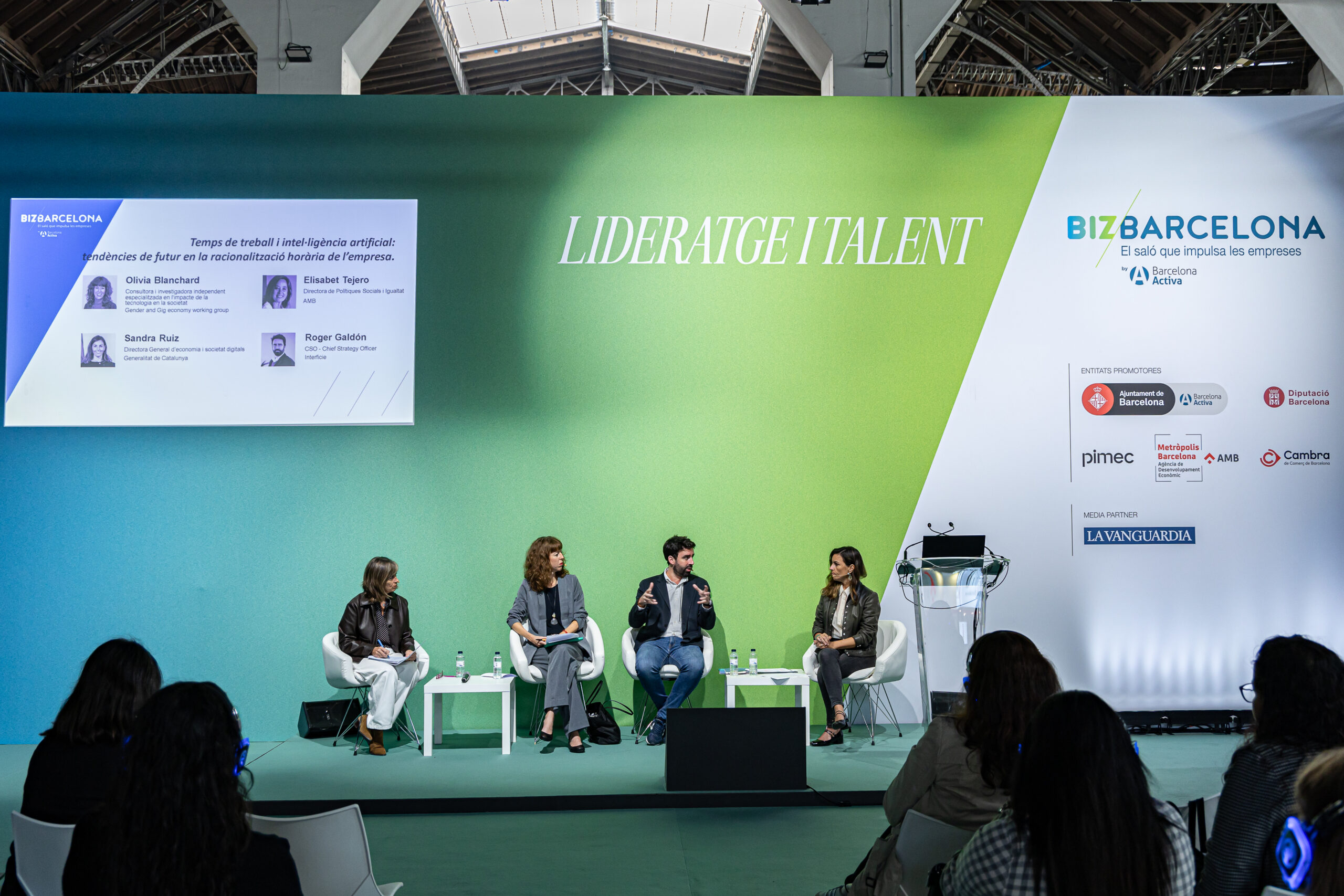

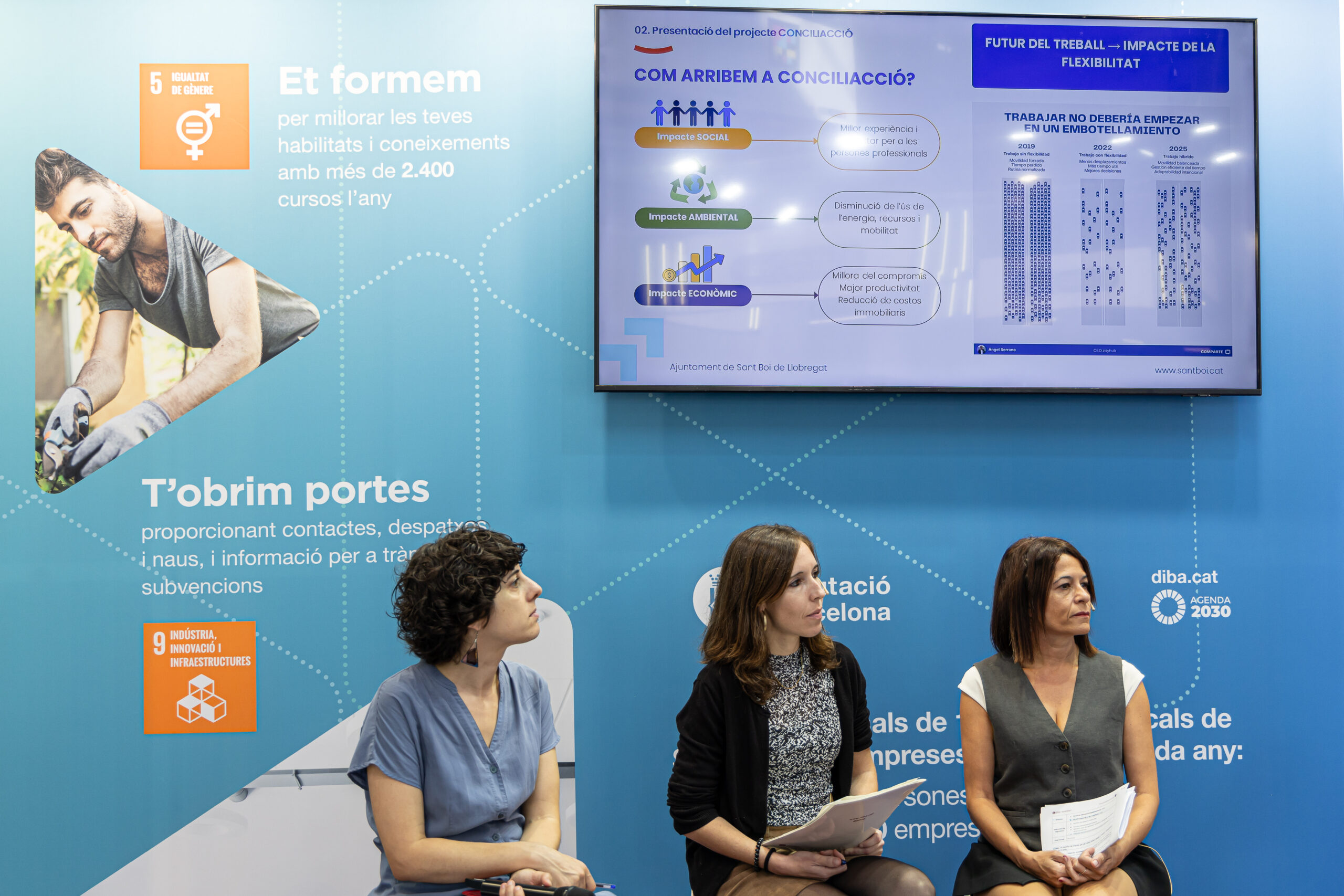
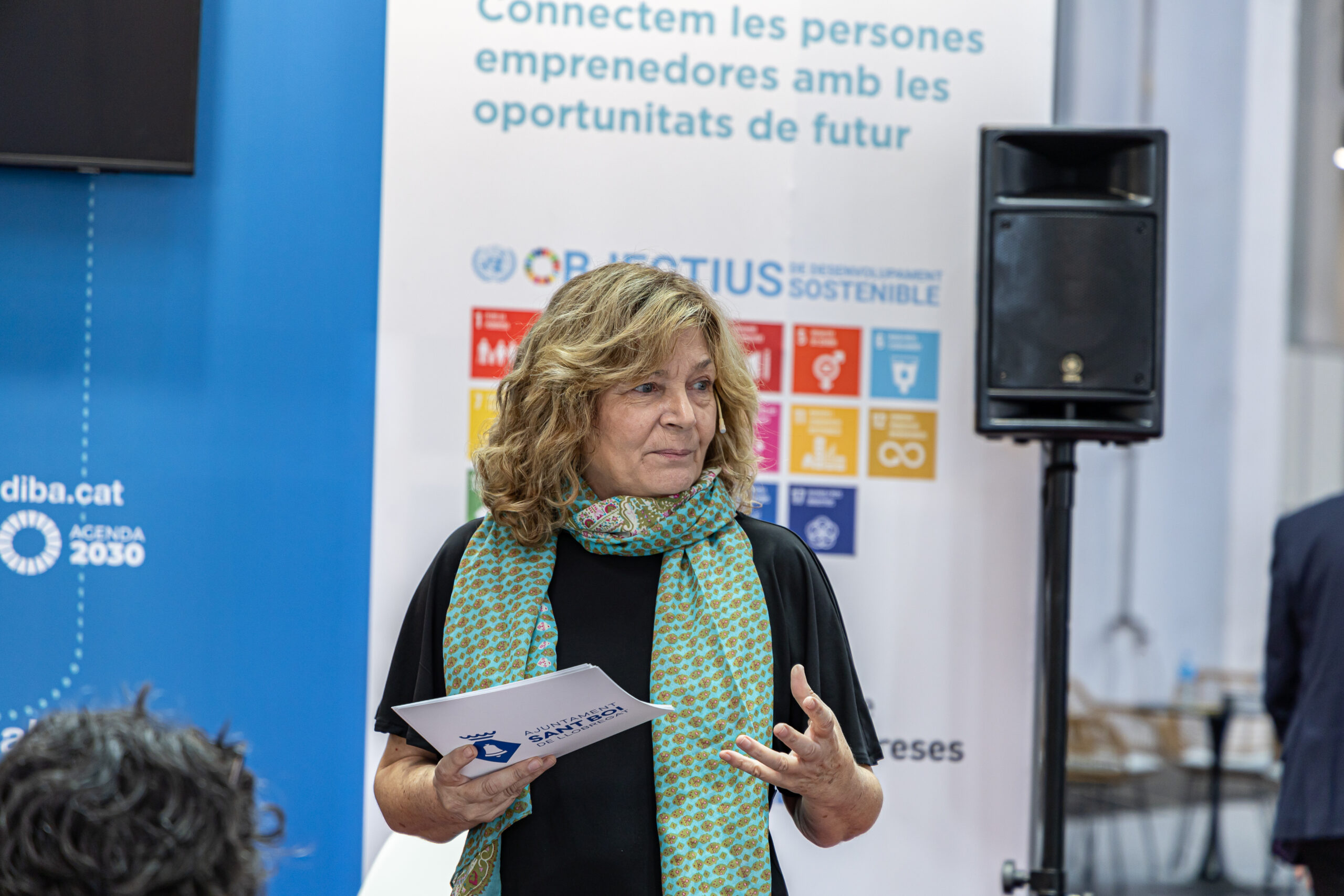
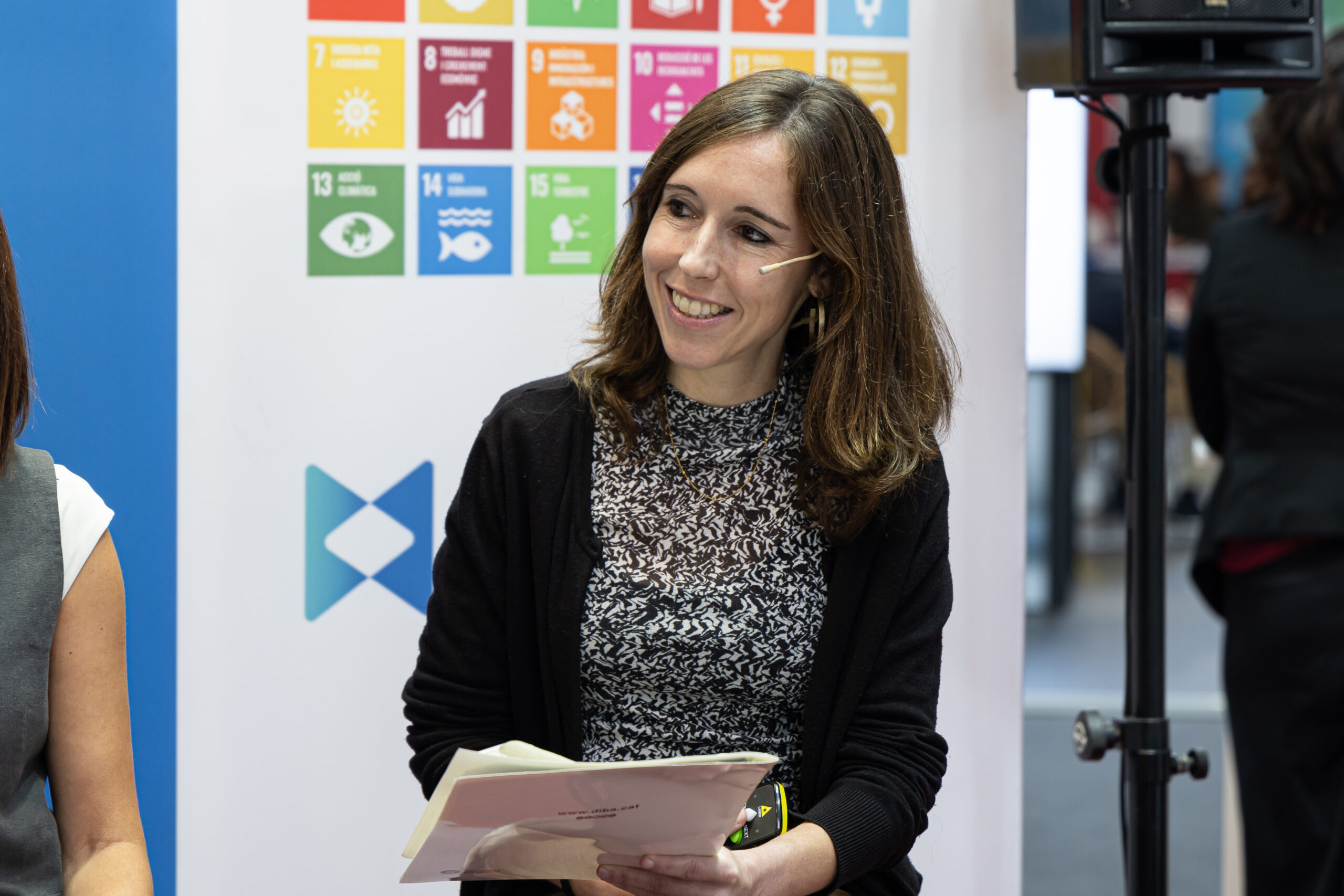
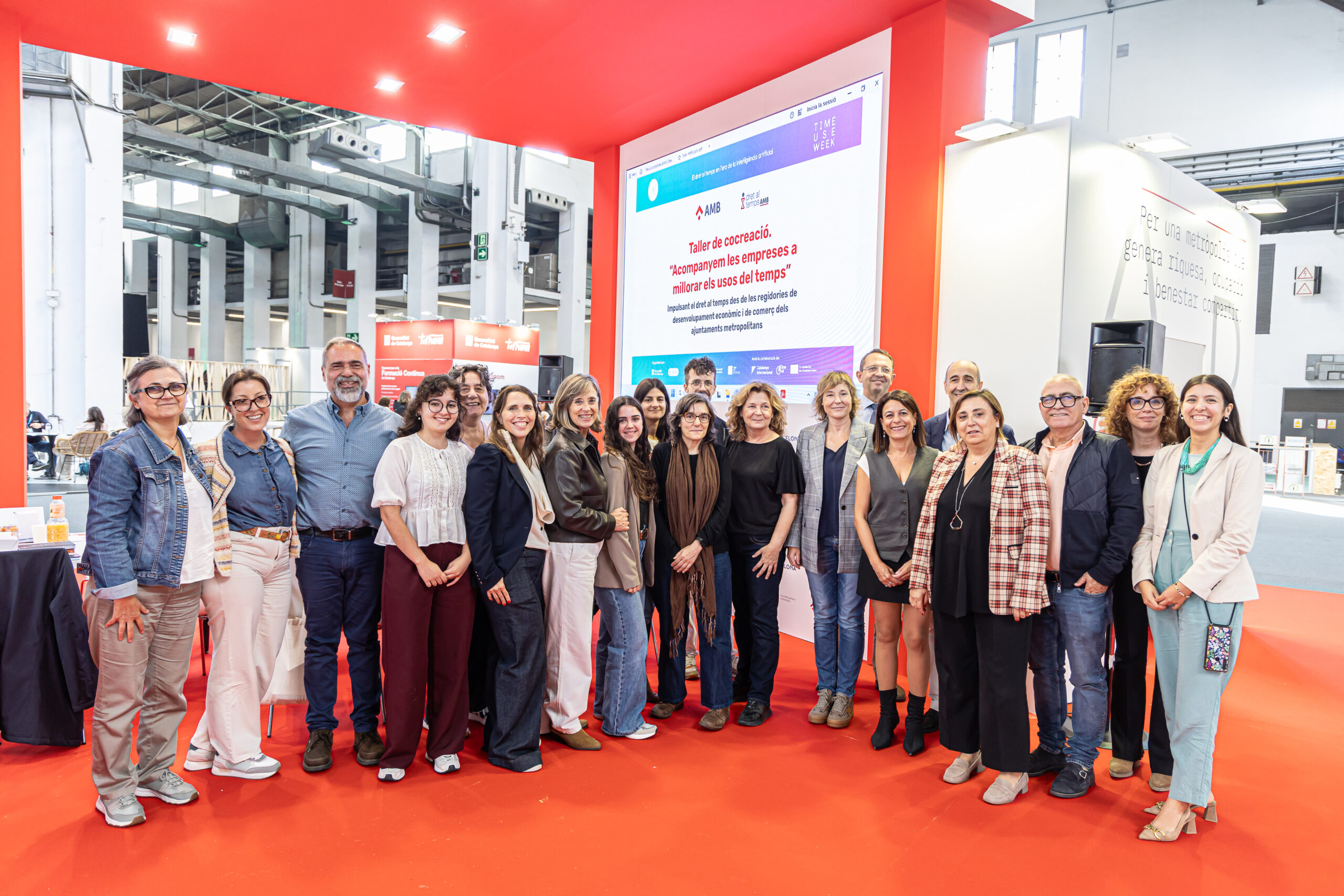
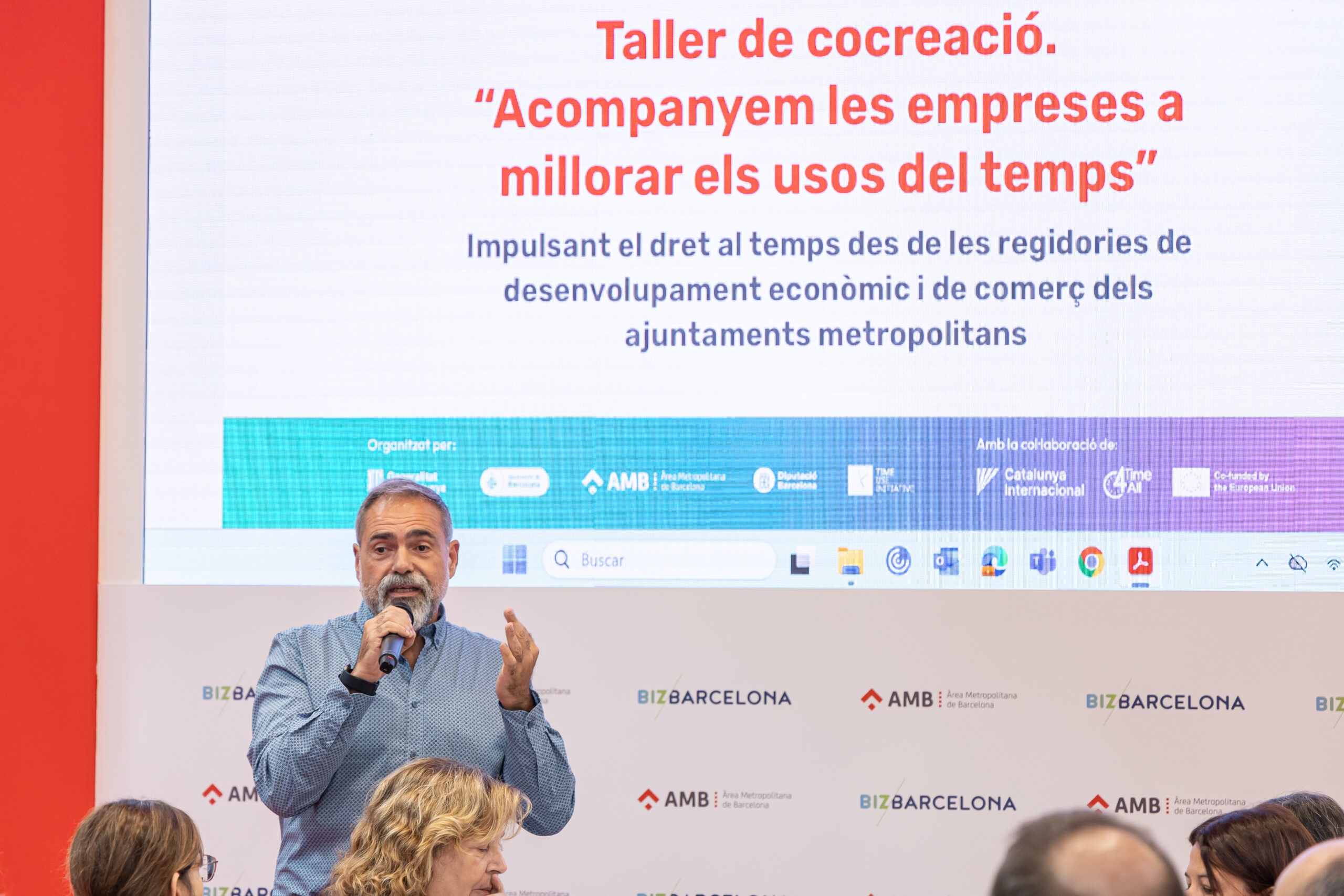
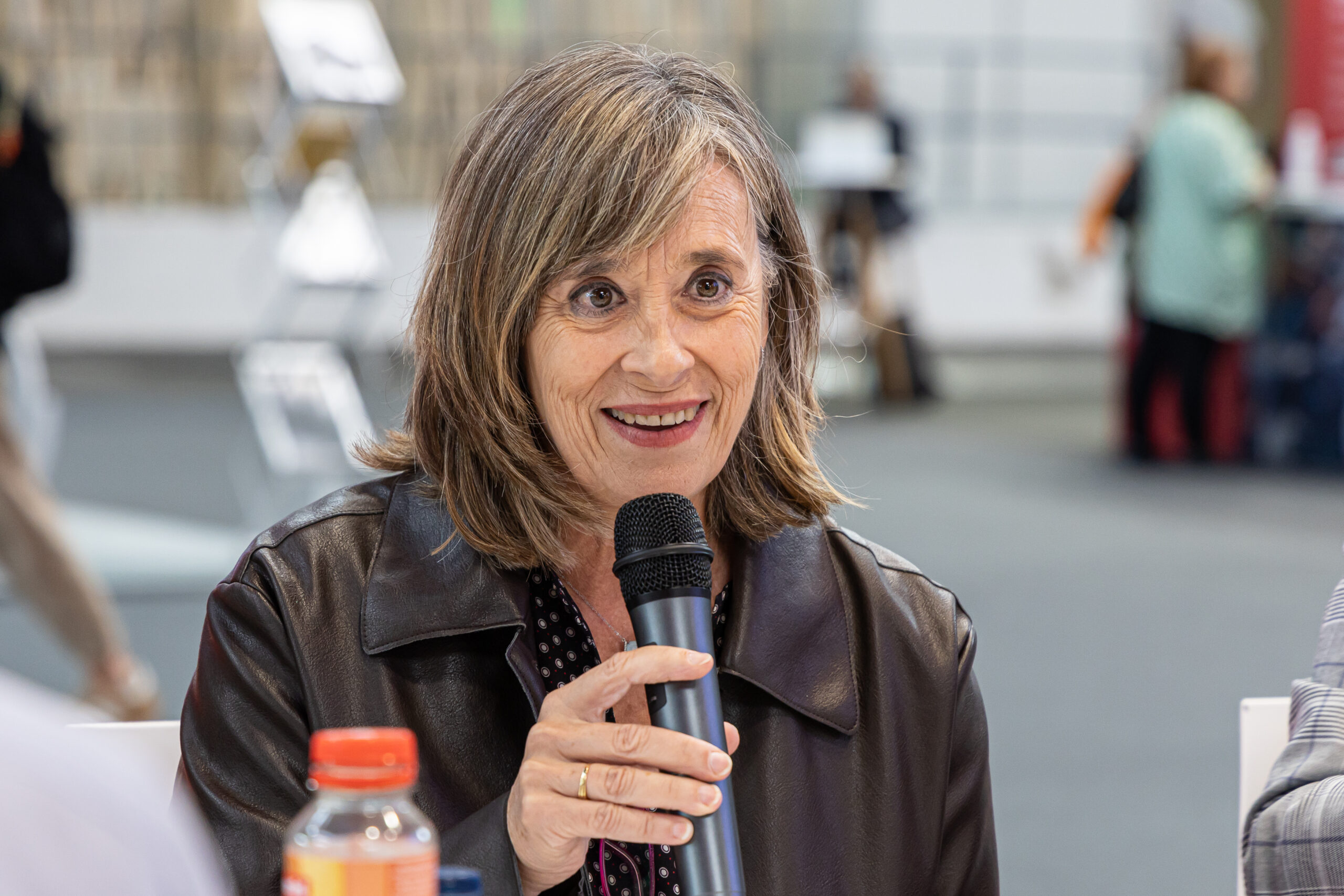
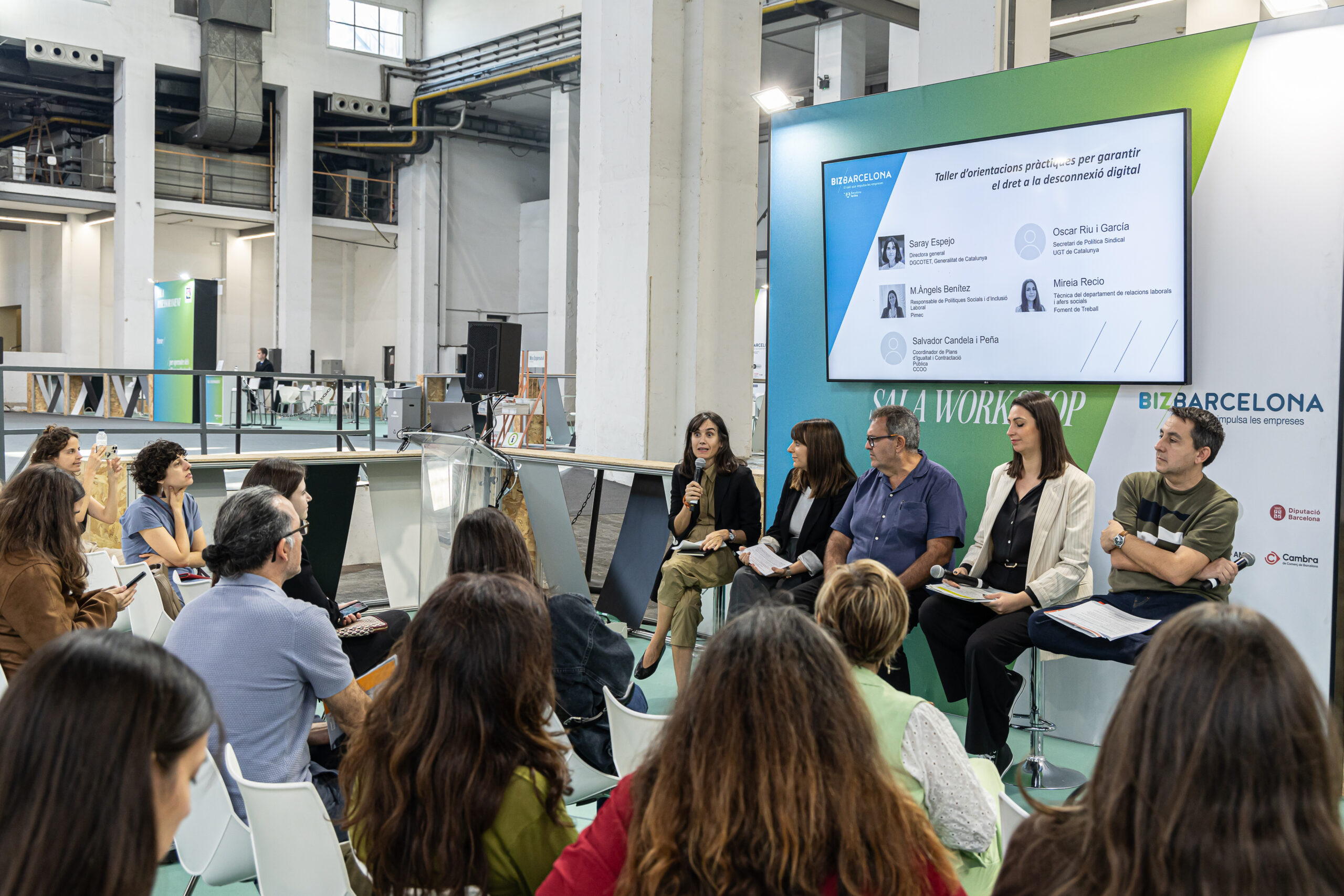
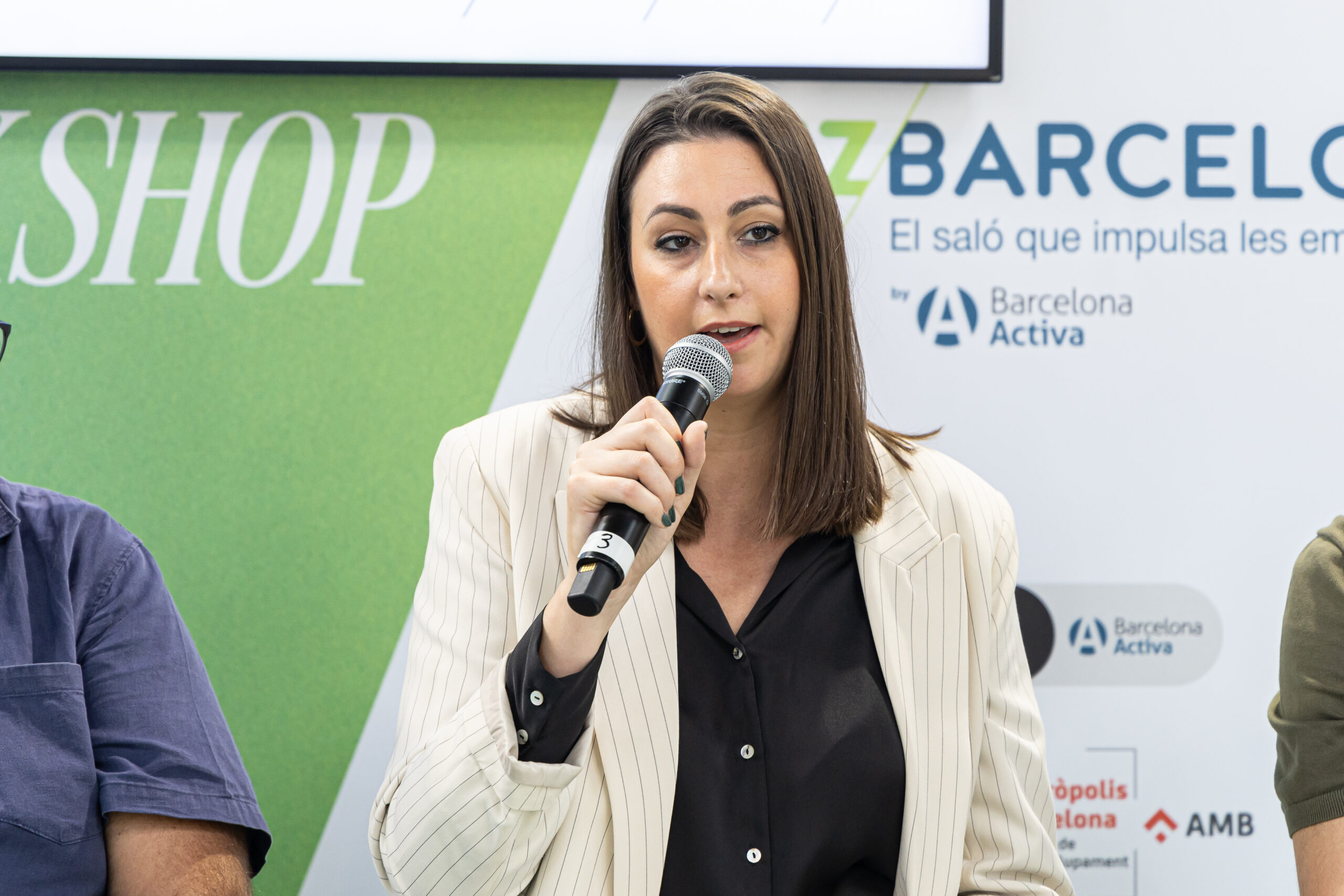
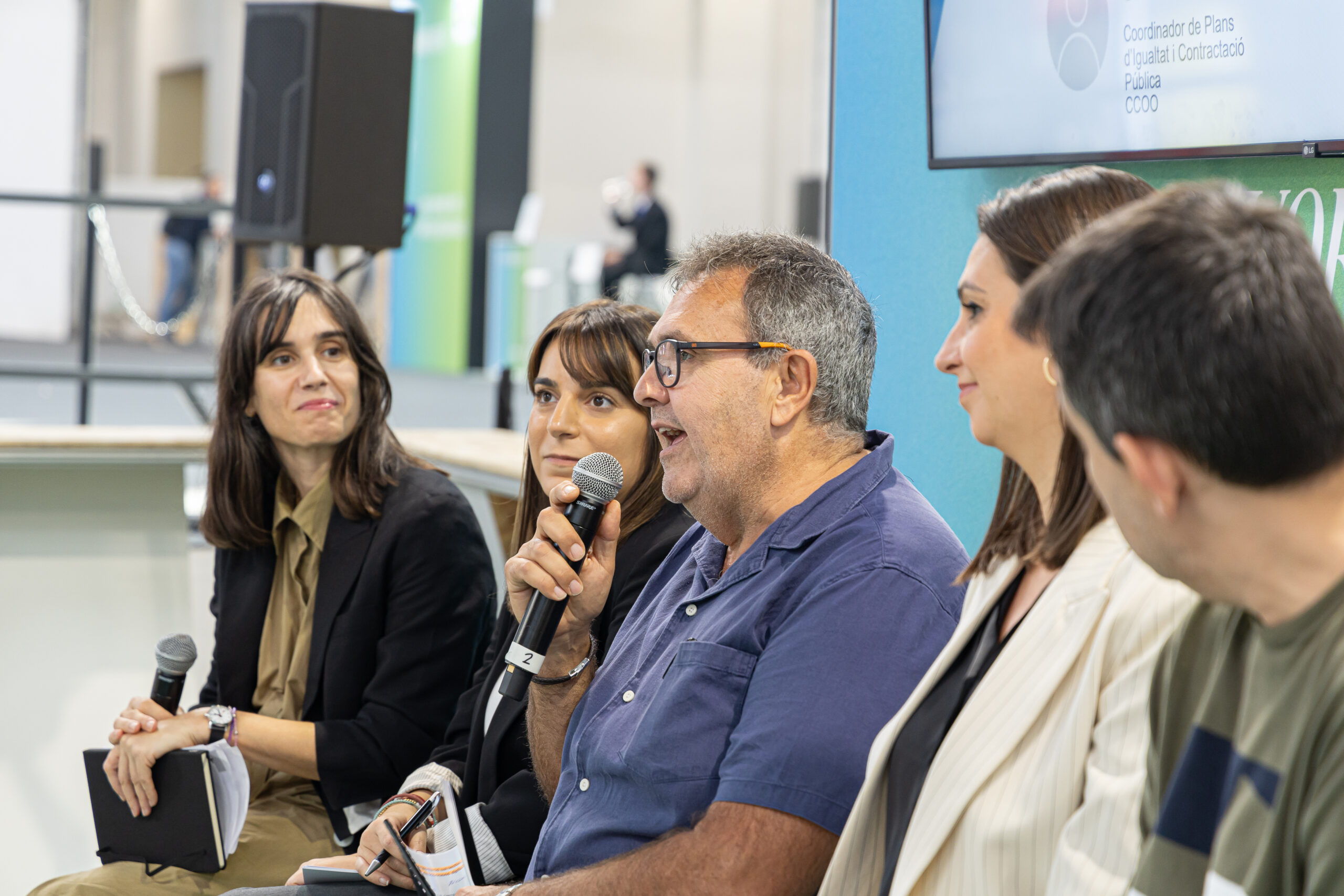
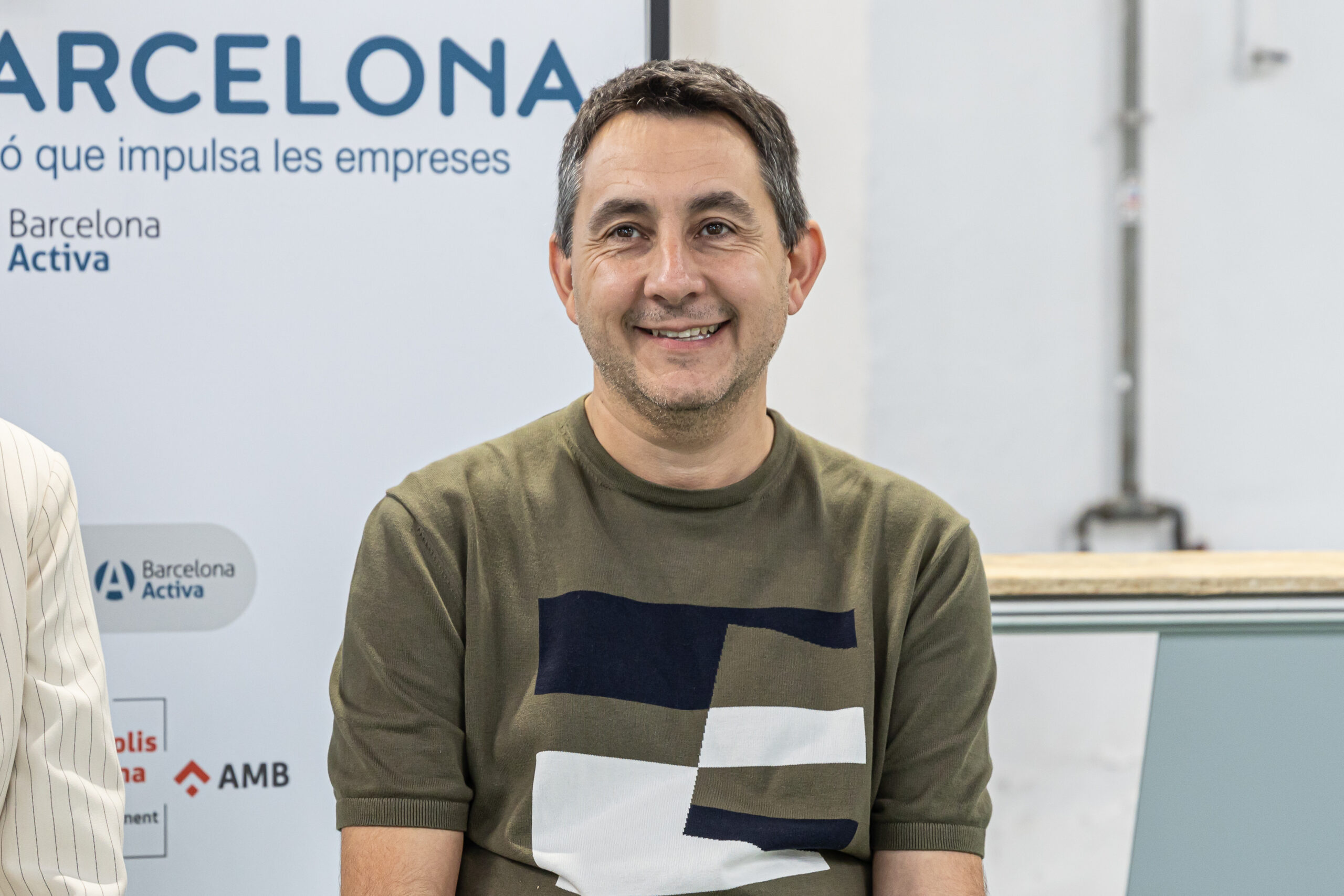
6. The digital acceleration with which we live is challenging the times and rhythms of democratic processes.
Xosé Carlos Arias Moreira, professor of Economic Policy at the University of Vigo, has warned about “the social desynchronization” – proposed by the German philosopher Hartmut Rosa – caused by the acceleration of daily life, although not in all areas, measure or intensity. Social aspects such as politics require slow rhythms for deliberation and consensus-building, while financial economics operates in nanoseconds.
7. Time policies work and improve life.
One of the most transformative and moving parts was when four beneficiaries of time policies shared their testimonies of how the ‘Little Ciba’ and ‘Concilia’ projects – care and babysitting services that facilitate work-life balance and offer respite to women and families who do not have a support network – have improved their lives.
“It’s a service that has given me something that seems very simple, but which gives me everything: time. Time to study, to take care of myself, and to breathe a little. Menuda Ciba is also a place of affection and support for me, which made me feel like someone in this country where I didn’t know anyone”, said Valentina Rios, a user of the Menuda Ciba Programme (Santa Coloma de Gramenet Town Council), funded by the Corresponsables fund (Department of Equality and Feminism of the Government of Catalonia).
The benefits are not only personal, but also professional. “In terms of work, I see that this service has given me life, because I have really been able to achieve a work-life balance. I go to work calm and focused and come back on time. For me, it has been a huge relief and, and I am extremely grateful”, said Rosana Real, a user of the Concilia service provided by Barcelona City Council.
8. It is necessary to praise slowness and put a stop to the accelerated pace of our times.
Experts claim that, in order to slow down the excessive acceleration that is wearing down society, and prevent mobile phones and apps, called by Cathy O’Neil as “tools of mass distraction” – from becoming time thieves, it is extremely relevant to apply a digital diet.
9. Sant Boi de Llobregat has been chosen as World Capital of Time Policies 2026.
At the General Assembly of the World Network of Cities and Regions in Time Policies, held on October 14 within the framework of Time Use Week, the municipality was recognized for its long history in time policies, such as the recent launch of a public-private network to promote work-life balance and a pioneering tool to measure it: ConciliAcció. The ConciliAcció project is funded by the Barcelona Provincial Council and the Metropolitan Area of Barcelona and the technical support of the Time Use Initiative.
10. To promote time policies, a series of resources aimed at Catalan municipalities and time use research teams were presented.
More than 80 people participated in the session, in which the leading Catalan administrations in time policies – Generalitat de Catalunya, Barcelona City Council, Barcelona Provincial Council, and Barcelona Metropolitan Area-, together with the Time Use Initiative, explained the resources they offer for Catalan municipalities and research teams to promote time policies. These resources are presented as particularly useful tools, since the results of the Survey on the Use of Time in Catalonia are scheduled to be presented in November.
As a result of the debates of Time Use Week 2025, all the organizations present committed to working to ensure that the right to time reaches everyone in the era of artificial intelligence.
The Institutional Declarations of the opening cerimony visualize the consensus and commitment for the right to time to reach everyone in the digital era
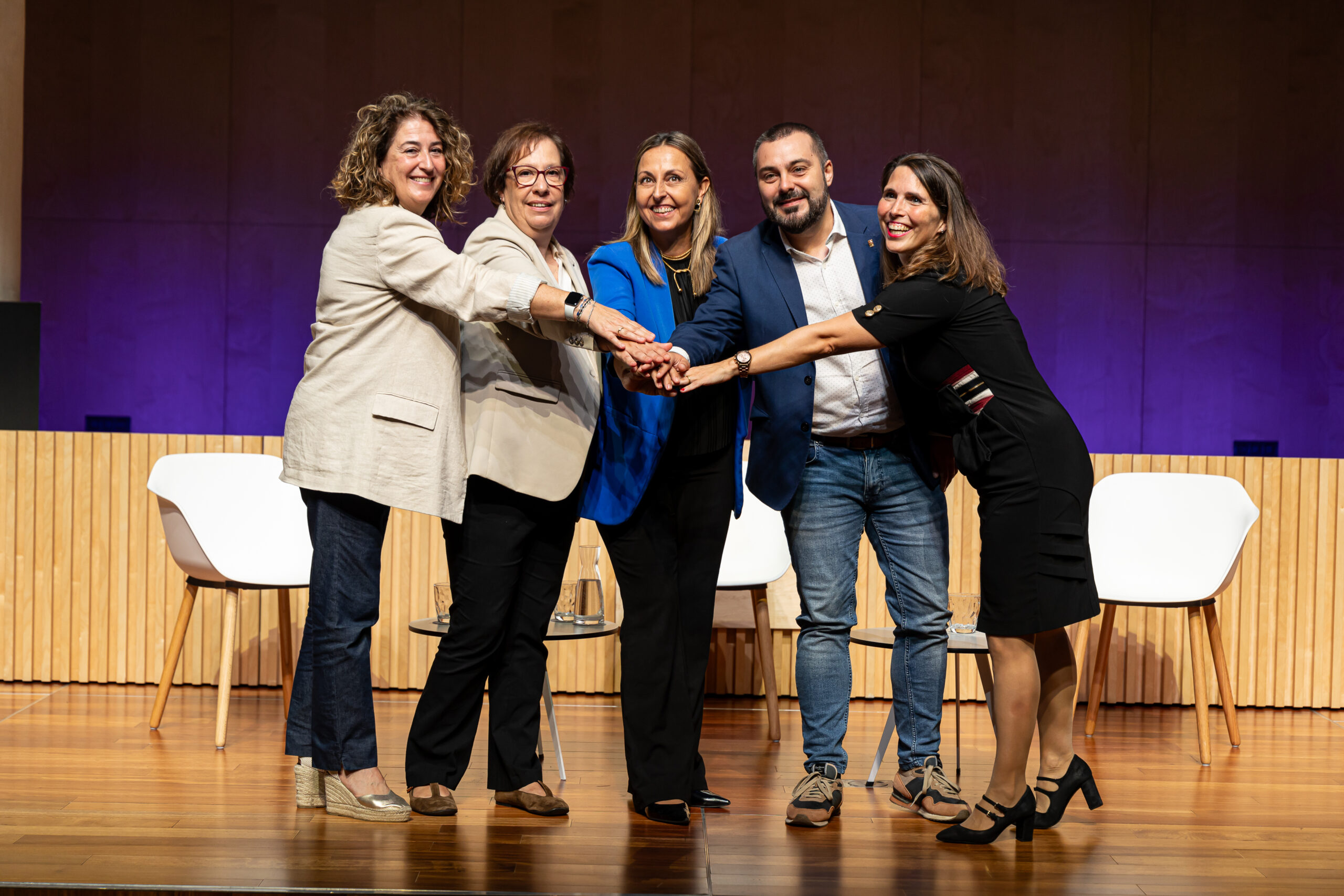
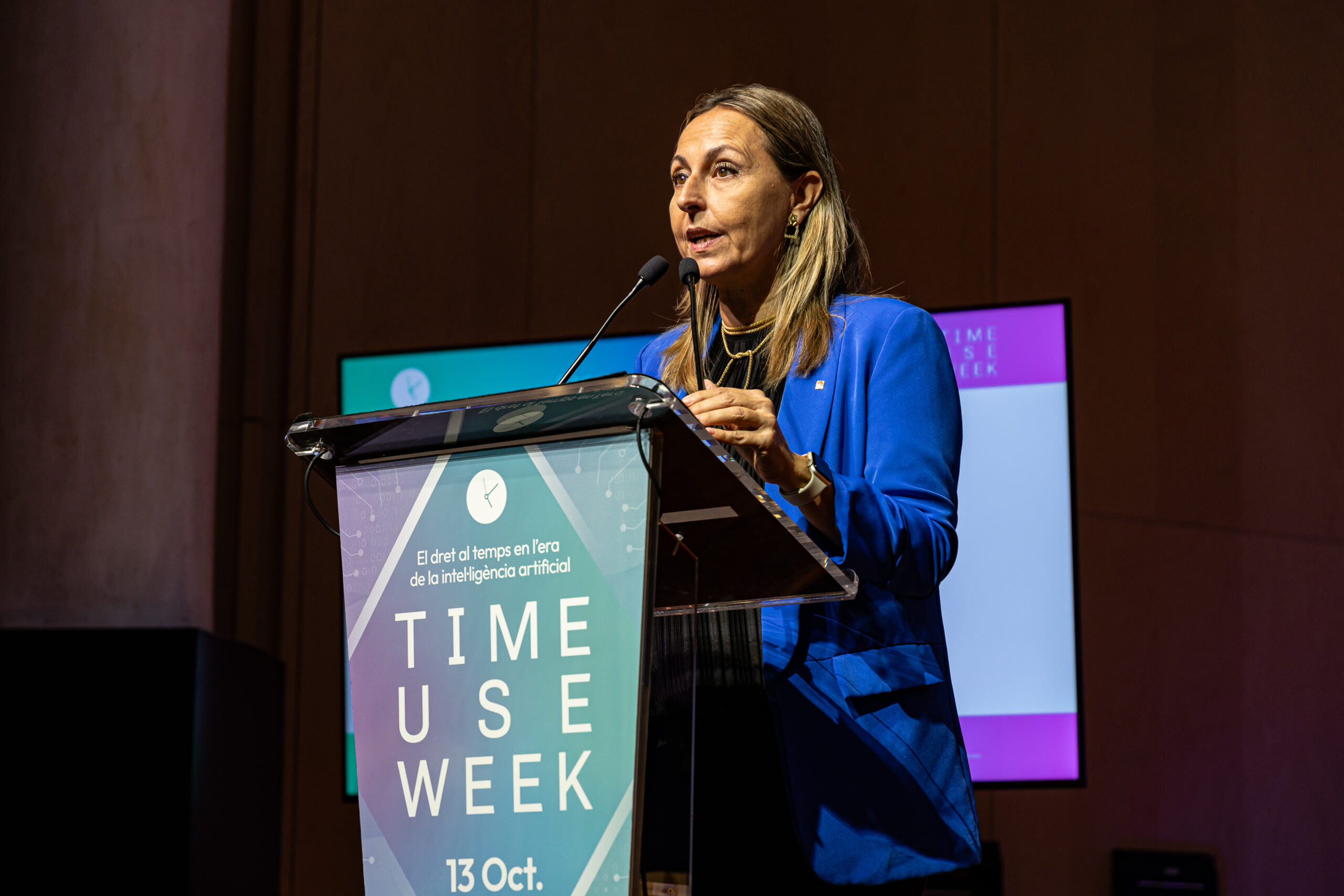
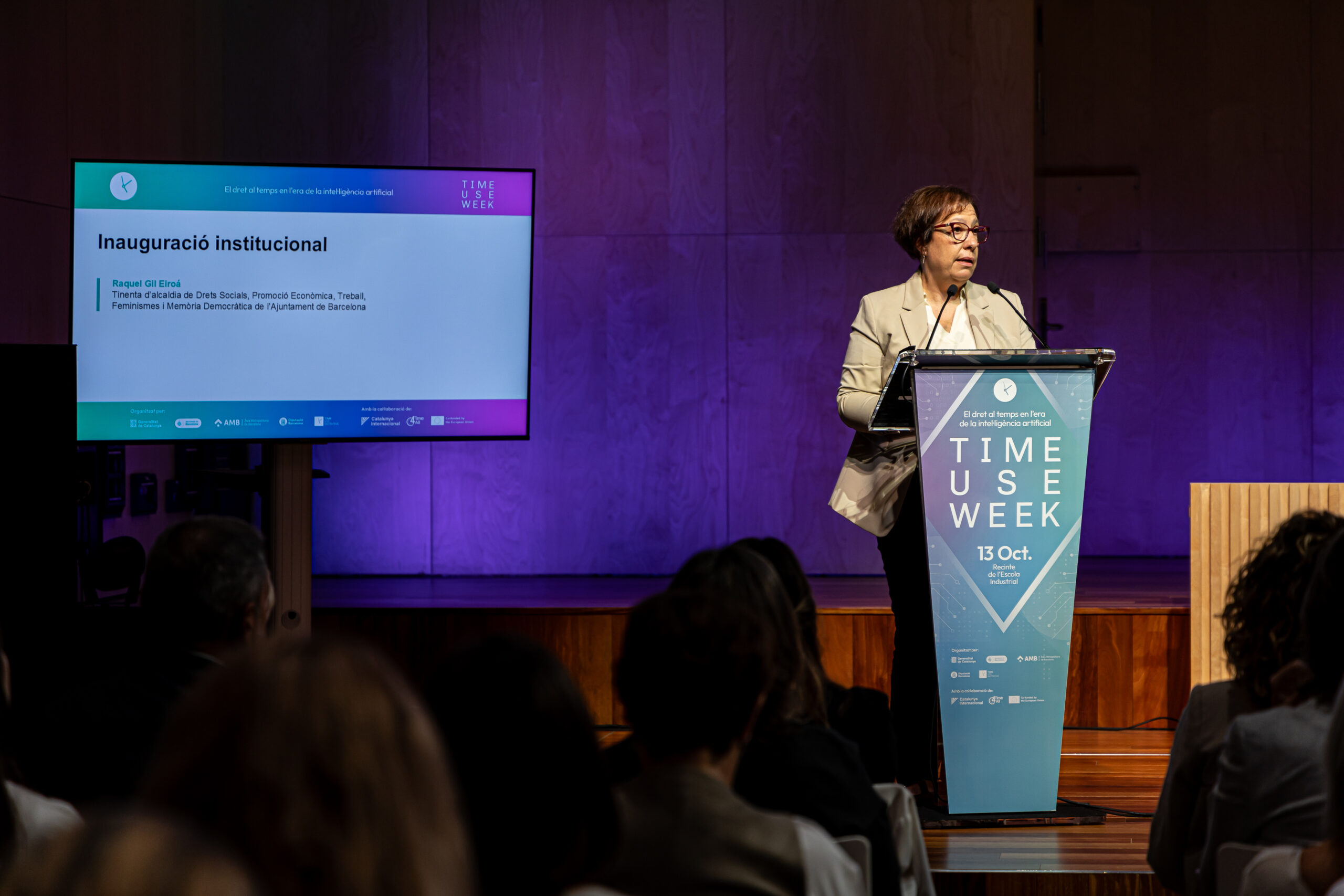
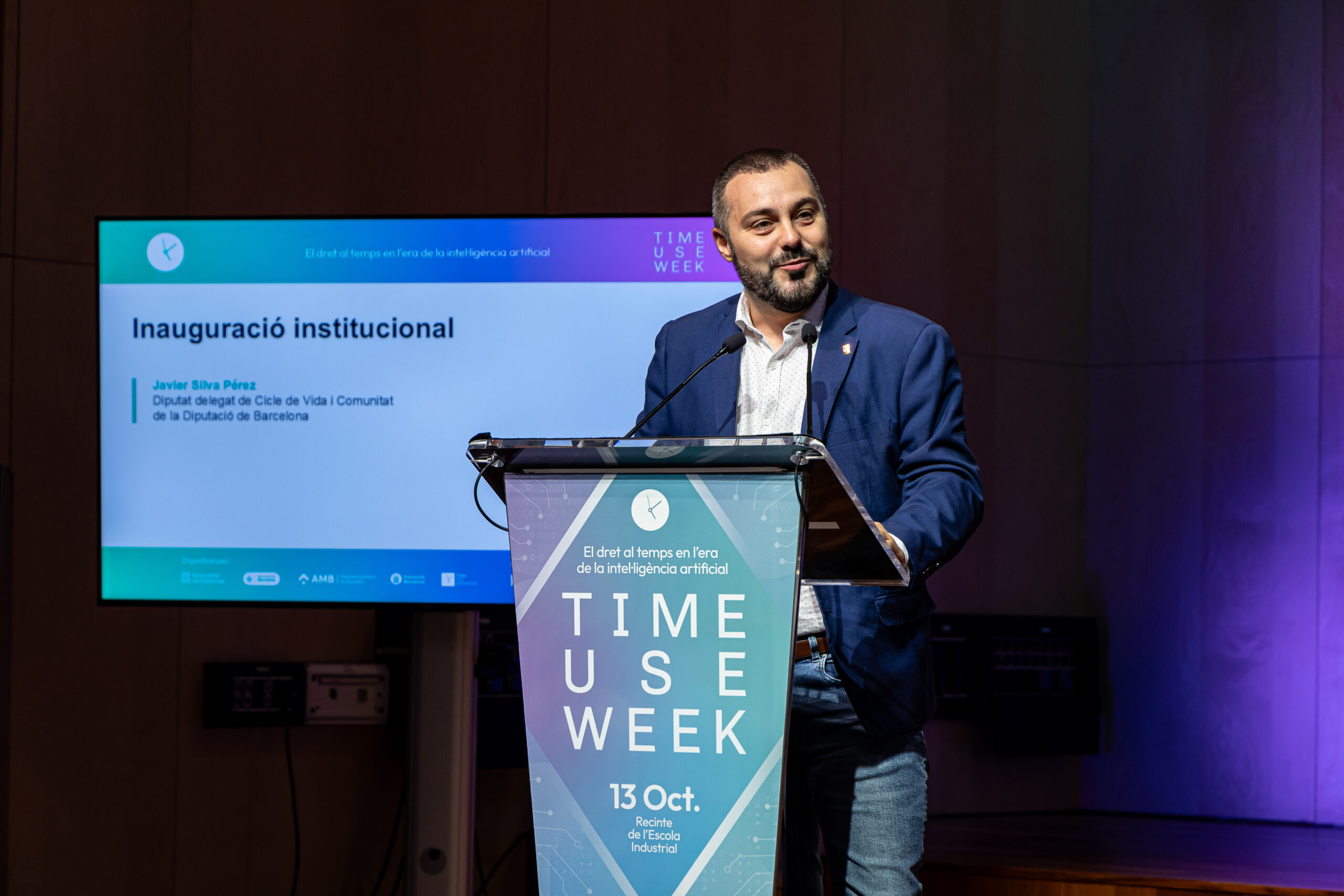
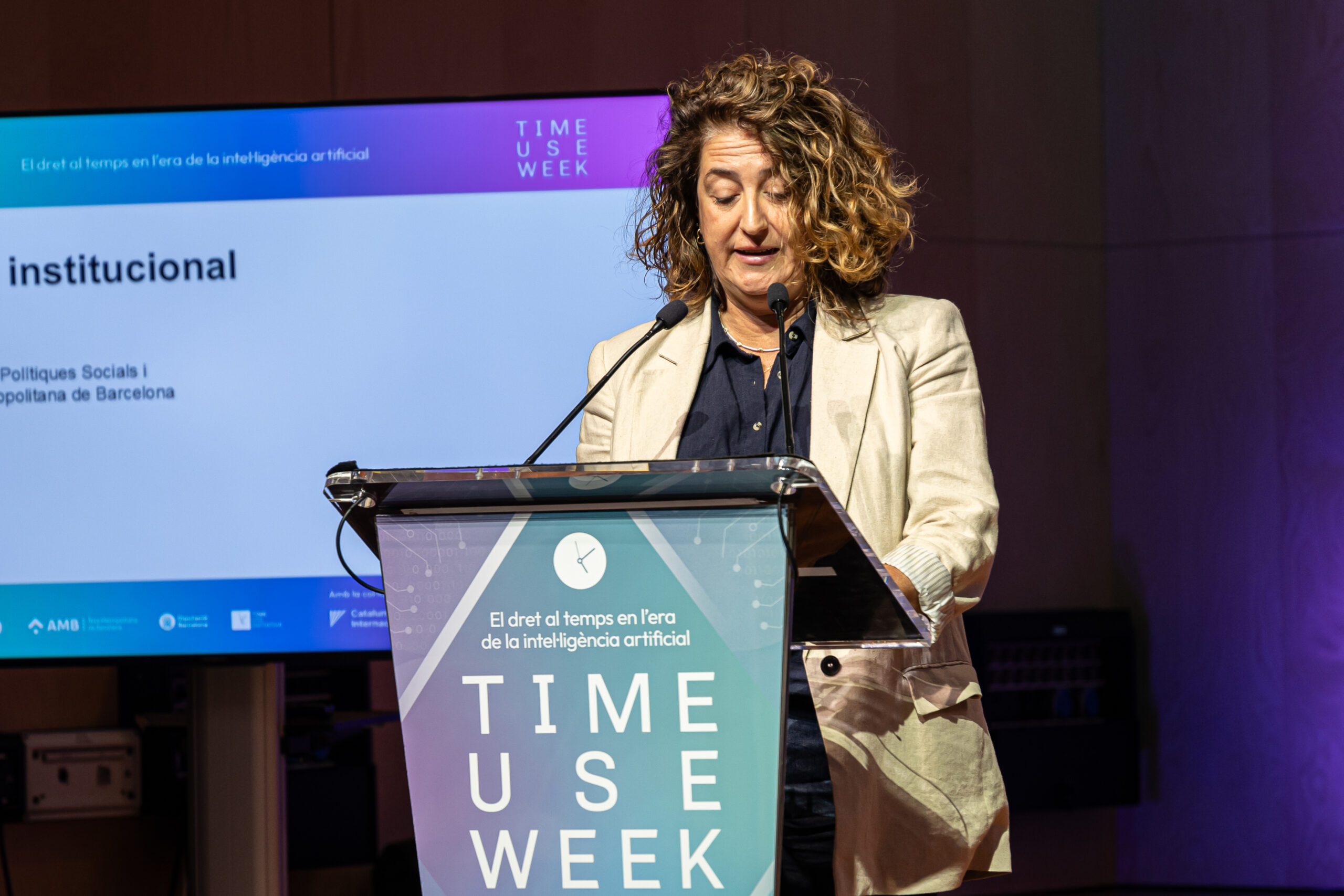
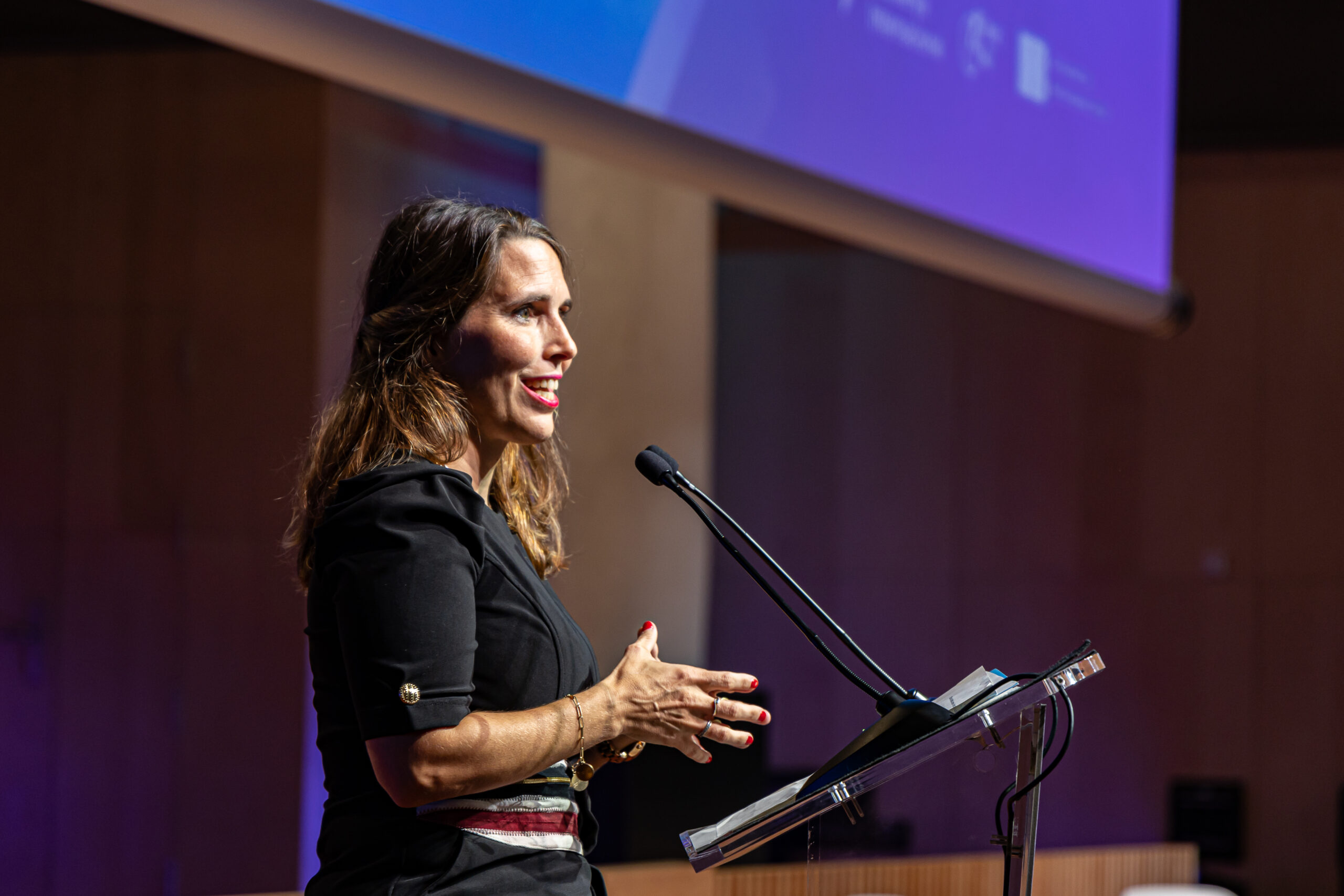
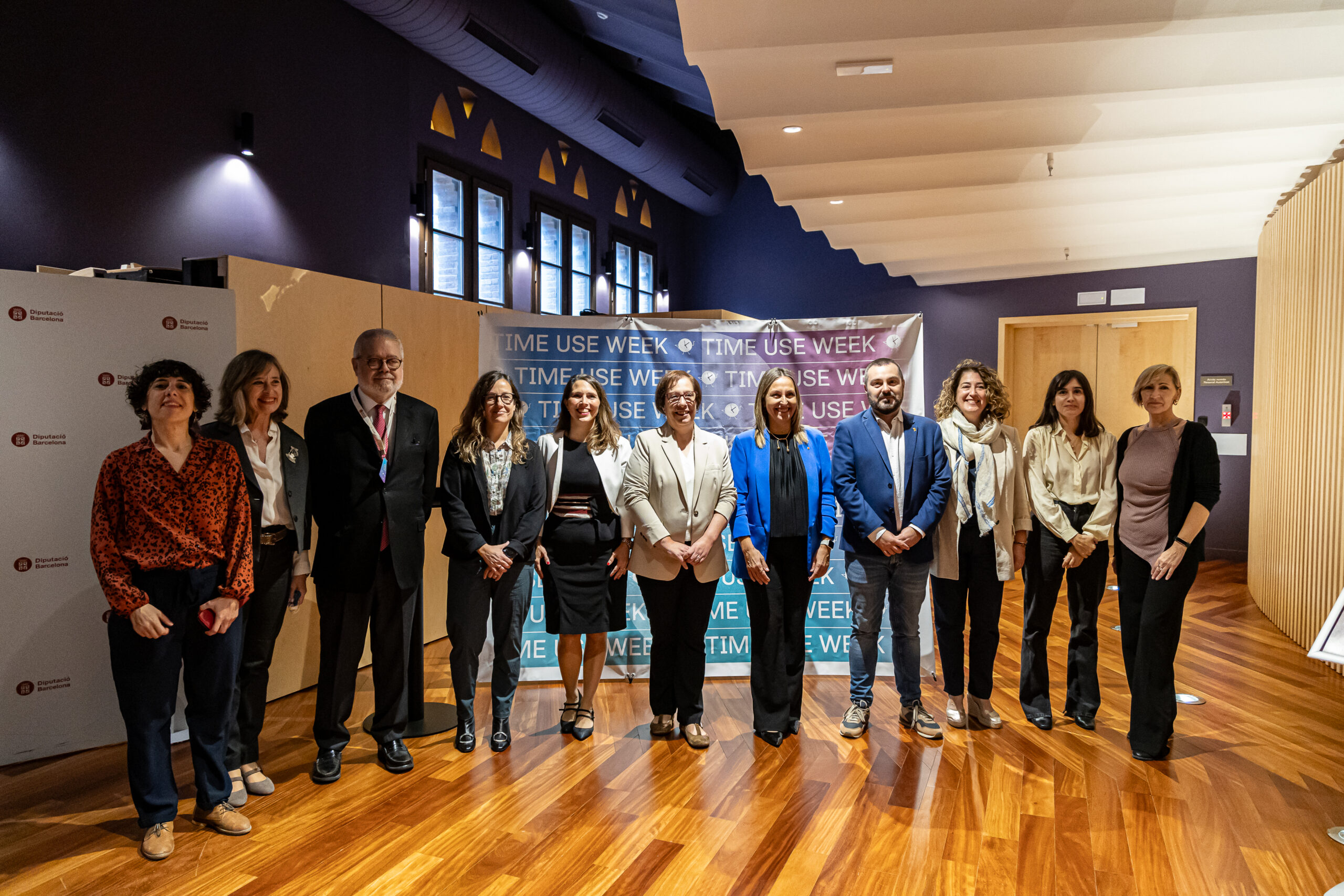
The inauguration of the Time Use Week confirmed the consensus and harmony among the main Catalan public institutions in working on the practical implementation of the right to time in the territory. The opening ceremony was attended by the following people:
- Eva Menor Cantador, Minister of Equality and Feminism of the Generalitat de Catalunya, recalled that “We know how important care is, an area that still falls mainly on women and that generates inequalities that we as a society must address. For this reason, we want to promote the Catalan Agenda for Conciliation and Co-responsibility, with the aim of ensuring that all people can reconcile work, personal and family life. This policy is part of the Catalan government’s feminist commitment to move towards a fairer, more equitable and sustainable society. The Agenda is based on recognising and redistributing care time, promoting co-responsibility between men and women and guaranteeing public services that facilitate conciliation”.
- Raquel Gil Eiroá, Deputy Mayor for Social Rights, Economic Promotion, Labour, Feminisms and Democratic Memory of Barcelona City Council, stated that “technologies, especially AI, have and will play a central role in time management in the professional environment. Our task is to promote public policies that facilitate digital democratization and the use of AI for people’s well-being. That is why we promote projects such as the Barcelona Agreement for Quality Employment (ABOQ), which works in co-responsibility with different actors for the reconciliation of work, family and personal lives, as well as adequate working hours and the flexibility and the work we do with the more than 150 companies in the NUST Network to promote a change in the organization of working time. Time policies are an instrument to promote equal opportunities, preventing time from acting as an aggravating factor of inequalities that arise due to gender, social class, origin or age.”
- Javier Silva Pérez, Deputy Delegate for Life Cycle and Community of the Area of Social Sustainability, Life Cycle and Community of the Barcelona Provincial Council, mentioned that “As institutions, we have the challenge and responsibility to ensure that technological transformations are at the service of well-being and social cohesion and the Right to Time and care. With an eye on this increasingly digitized context, the Barcelona Provincial Council continues to work on the promotion of Local Time Organisation Plans and advancing in the deployment of new measures within the framework of the project ‘Towards a new public care system in the community’. We have before us the opportunity to make technological advances a tool that comes to democratize time, care and builds fairer, more sustainable and cohesive communities.”
- Olga Morales Segura, CEO of Social Policies and Equality of the Barcelona Metropolitan Area (AMB), said that “the AMB wants to focus on a reality that continues to mark the structural inequalities of our society: time poverty has a woman’s face. Women devote, on average, almost twice as many hours as men to unpaid domestic and care tasks, which limits their participation in employment, training and community life.” In addition, Morales explained that “from the AMB we promote the Metropolitan Pact for the Right to Time and accompany the municipalities to transform this reality“. Finally, the CEO of the AMB explained that “our commitment is to continue promoting policies that reduce women’s time poverty and promote a more equitable social organization, where having time is also a way to guarantee equality and well-being”.
- Marta Junqué Surià, director of the Time Use Initiative, highlighted that “the great challenge of the era of artificial intelligence is to ensure that technological progress translates into more quality time to live, and not into more time poverty. We must give hope that we can have a better relationship with time.”



